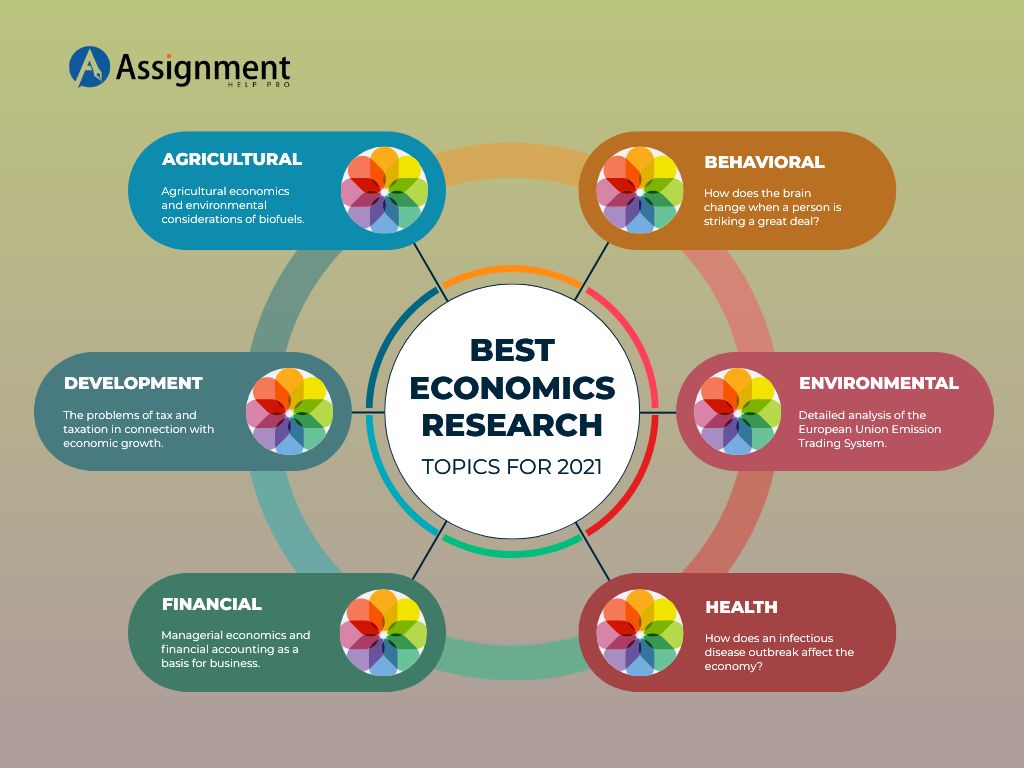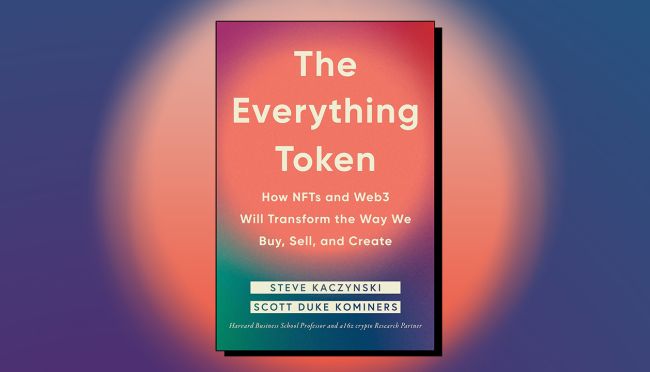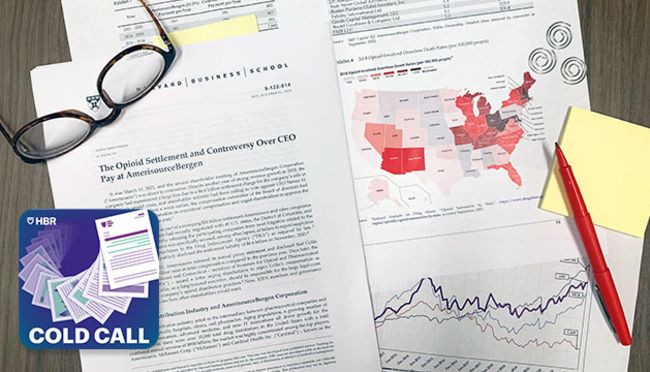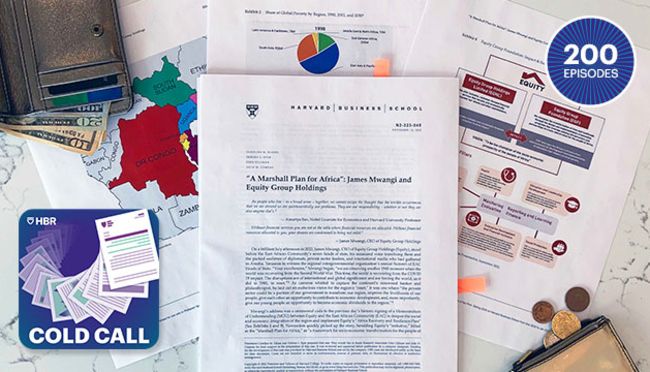
Research Topics & Ideas: Finance
120+ Finance Research Topic Ideas To Fast-Track Your Project
If you’re just starting out exploring potential research topics for your finance-related dissertation, thesis or research project, you’ve come to the right place. In this post, we’ll help kickstart your research topic ideation process by providing a hearty list of finance-centric research topics and ideas.
PS – This is just the start…
We know it’s exciting to run through a list of research topics, but please keep in mind that this list is just a starting point . To develop a suitable education-related research topic, you’ll need to identify a clear and convincing research gap , and a viable plan of action to fill that gap.
If this sounds foreign to you, check out our free research topic webinar that explores how to find and refine a high-quality research topic, from scratch. Alternatively, if you’d like hands-on help, consider our 1-on-1 coaching service .
Overview: Finance Research Topics
- Corporate finance topics
- Investment banking topics
- Private equity & VC
- Asset management
- Hedge funds
- Financial planning & advisory
- Quantitative finance
- Treasury management
- Financial technology (FinTech)
- Commercial banking
- International finance

Corporate Finance
These research topic ideas explore a breadth of issues ranging from the examination of capital structure to the exploration of financial strategies in mergers and acquisitions.
- Evaluating the impact of capital structure on firm performance across different industries
- Assessing the effectiveness of financial management practices in emerging markets
- A comparative analysis of the cost of capital and financial structure in multinational corporations across different regulatory environments
- Examining how integrating sustainability and CSR initiatives affect a corporation’s financial performance and brand reputation
- Analysing how rigorous financial analysis informs strategic decisions and contributes to corporate growth
- Examining the relationship between corporate governance structures and financial performance
- A comparative analysis of financing strategies among mergers and acquisitions
- Evaluating the importance of financial transparency and its impact on investor relations and trust
- Investigating the role of financial flexibility in strategic investment decisions during economic downturns
- Investigating how different dividend policies affect shareholder value and the firm’s financial performance
Investment Banking
The list below presents a series of research topics exploring the multifaceted dimensions of investment banking, with a particular focus on its evolution following the 2008 financial crisis.
- Analysing the evolution and impact of regulatory frameworks in investment banking post-2008 financial crisis
- Investigating the challenges and opportunities associated with cross-border M&As facilitated by investment banks.
- Evaluating the role of investment banks in facilitating mergers and acquisitions in emerging markets
- Analysing the transformation brought about by digital technologies in the delivery of investment banking services and its effects on efficiency and client satisfaction.
- Evaluating the role of investment banks in promoting sustainable finance and the integration of Environmental, Social, and Governance (ESG) criteria in investment decisions.
- Assessing the impact of technology on the efficiency and effectiveness of investment banking services
- Examining the effectiveness of investment banks in pricing and marketing IPOs, and the subsequent performance of these IPOs in the stock market.
- A comparative analysis of different risk management strategies employed by investment banks
- Examining the relationship between investment banking fees and corporate performance
- A comparative analysis of competitive strategies employed by leading investment banks and their impact on market share and profitability
Private Equity & Venture Capital (VC)
These research topic ideas are centred on venture capital and private equity investments, with a focus on their impact on technological startups, emerging technologies, and broader economic ecosystems.
- Investigating the determinants of successful venture capital investments in tech startups
- Analysing the trends and outcomes of venture capital funding in emerging technologies such as artificial intelligence, blockchain, or clean energy
- Assessing the performance and return on investment of different exit strategies employed by venture capital firms
- Assessing the impact of private equity investments on the financial performance of SMEs
- Analysing the role of venture capital in fostering innovation and entrepreneurship
- Evaluating the exit strategies of private equity firms: A comparative analysis
- Exploring the ethical considerations in private equity and venture capital financing
- Investigating how private equity ownership influences operational efficiency and overall business performance
- Evaluating the effectiveness of corporate governance structures in companies backed by private equity investments
- Examining how the regulatory environment in different regions affects the operations, investments and performance of private equity and venture capital firms

Asset Management
This list includes a range of research topic ideas focused on asset management, probing into the effectiveness of various strategies, the integration of technology, and the alignment with ethical principles among other key dimensions.
- Analysing the effectiveness of different asset allocation strategies in diverse economic environments
- Analysing the methodologies and effectiveness of performance attribution in asset management firms
- Assessing the impact of environmental, social, and governance (ESG) criteria on fund performance
- Examining the role of robo-advisors in modern asset management
- Evaluating how advancements in technology are reshaping portfolio management strategies within asset management firms
- Evaluating the performance persistence of mutual funds and hedge funds
- Investigating the long-term performance of portfolios managed with ethical or socially responsible investing principles
- Investigating the behavioural biases in individual and institutional investment decisions
- Examining the asset allocation strategies employed by pension funds and their impact on long-term fund performance
- Assessing the operational efficiency of asset management firms and its correlation with fund performance
Hedge Funds
Here we explore research topics related to hedge fund operations and strategies, including their implications on corporate governance, financial market stability, and regulatory compliance among other critical facets.
- Assessing the impact of hedge fund activism on corporate governance and financial performance
- Analysing the effectiveness and implications of market-neutral strategies employed by hedge funds
- Investigating how different fee structures impact the performance and investor attraction to hedge funds
- Evaluating the contribution of hedge funds to financial market liquidity and the implications for market stability
- Analysing the risk-return profile of hedge fund strategies during financial crises
- Evaluating the influence of regulatory changes on hedge fund operations and performance
- Examining the level of transparency and disclosure practices in the hedge fund industry and its impact on investor trust and regulatory compliance
- Assessing the contribution of hedge funds to systemic risk in financial markets, and the effectiveness of regulatory measures in mitigating such risks
- Examining the role of hedge funds in financial market stability
- Investigating the determinants of hedge fund success: A comparative analysis
Financial Planning and Advisory
This list explores various research topic ideas related to financial planning, focusing on the effects of financial literacy, the adoption of digital tools, taxation policies, and the role of financial advisors.
- Evaluating the impact of financial literacy on individual financial planning effectiveness
- Analysing how different taxation policies influence financial planning strategies among individuals and businesses
- Evaluating the effectiveness and user adoption of digital tools in modern financial planning practices
- Investigating the adequacy of long-term financial planning strategies in ensuring retirement security
- Assessing the role of financial education in shaping financial planning behaviour among different demographic groups
- Examining the impact of psychological biases on financial planning and decision-making, and strategies to mitigate these biases
- Assessing the behavioural factors influencing financial planning decisions
- Examining the role of financial advisors in managing retirement savings
- A comparative analysis of traditional versus robo-advisory in financial planning
- Investigating the ethics of financial advisory practices

The following list delves into research topics within the insurance sector, touching on the technological transformations, regulatory shifts, and evolving consumer behaviours among other pivotal aspects.
- Analysing the impact of technology adoption on insurance pricing and risk management
- Analysing the influence of Insurtech innovations on the competitive dynamics and consumer choices in insurance markets
- Investigating the factors affecting consumer behaviour in insurance product selection and the role of digital channels in influencing decisions
- Assessing the effect of regulatory changes on insurance product offerings
- Examining the determinants of insurance penetration in emerging markets
- Evaluating the operational efficiency of claims management processes in insurance companies and its impact on customer satisfaction
- Examining the evolution and effectiveness of risk assessment models used in insurance underwriting and their impact on pricing and coverage
- Evaluating the role of insurance in financial stability and economic development
- Investigating the impact of climate change on insurance models and products
- Exploring the challenges and opportunities in underwriting cyber insurance in the face of evolving cyber threats and regulations
Quantitative Finance
These topic ideas span the development of asset pricing models, evaluation of machine learning algorithms, and the exploration of ethical implications among other pivotal areas.
- Developing and testing new quantitative models for asset pricing
- Analysing the effectiveness and limitations of machine learning algorithms in predicting financial market movements
- Assessing the effectiveness of various risk management techniques in quantitative finance
- Evaluating the advancements in portfolio optimisation techniques and their impact on risk-adjusted returns
- Evaluating the impact of high-frequency trading on market efficiency and stability
- Investigating the influence of algorithmic trading strategies on market efficiency and liquidity
- Examining the risk parity approach in asset allocation and its effectiveness in different market conditions
- Examining the application of machine learning and artificial intelligence in quantitative financial analysis
- Investigating the ethical implications of quantitative financial innovations
- Assessing the profitability and market impact of statistical arbitrage strategies considering different market microstructures
Treasury Management
The following topic ideas explore treasury management, focusing on modernisation through technological advancements, the impact on firm liquidity, and the intertwined relationship with corporate governance among other crucial areas.
- Analysing the impact of treasury management practices on firm liquidity and profitability
- Analysing the role of automation in enhancing operational efficiency and strategic decision-making in treasury management
- Evaluating the effectiveness of various cash management strategies in multinational corporations
- Investigating the potential of blockchain technology in streamlining treasury operations and enhancing transparency
- Examining the role of treasury management in mitigating financial risks
- Evaluating the accuracy and effectiveness of various cash flow forecasting techniques employed in treasury management
- Assessing the impact of technological advancements on treasury management operations
- Examining the effectiveness of different foreign exchange risk management strategies employed by treasury managers in multinational corporations
- Assessing the impact of regulatory compliance requirements on the operational and strategic aspects of treasury management
- Investigating the relationship between treasury management and corporate governance
Financial Technology (FinTech)
The following research topic ideas explore the transformative potential of blockchain, the rise of open banking, and the burgeoning landscape of peer-to-peer lending among other focal areas.
- Evaluating the impact of blockchain technology on financial services
- Investigating the implications of open banking on consumer data privacy and financial services competition
- Assessing the role of FinTech in financial inclusion in emerging markets
- Analysing the role of peer-to-peer lending platforms in promoting financial inclusion and their impact on traditional banking systems
- Examining the cybersecurity challenges faced by FinTech firms and the regulatory measures to ensure data protection and financial stability
- Examining the regulatory challenges and opportunities in the FinTech ecosystem
- Assessing the impact of artificial intelligence on the delivery of financial services, customer experience, and operational efficiency within FinTech firms
- Analysing the adoption and impact of cryptocurrencies on traditional financial systems
- Investigating the determinants of success for FinTech startups

Commercial Banking
These topic ideas span commercial banking, encompassing digital transformation, support for small and medium-sized enterprises (SMEs), and the evolving regulatory and competitive landscape among other key themes.
- Assessing the impact of digital transformation on commercial banking services and competitiveness
- Analysing the impact of digital transformation on customer experience and operational efficiency in commercial banking
- Evaluating the role of commercial banks in supporting small and medium-sized enterprises (SMEs)
- Investigating the effectiveness of credit risk management practices and their impact on bank profitability and financial stability
- Examining the relationship between commercial banking practices and financial stability
- Evaluating the implications of open banking frameworks on the competitive landscape and service innovation in commercial banking
- Assessing how regulatory changes affect lending practices and risk appetite of commercial banks
- Examining how commercial banks are adapting their strategies in response to competition from FinTech firms and changing consumer preferences
- Analysing the impact of regulatory compliance on commercial banking operations
- Investigating the determinants of customer satisfaction and loyalty in commercial banking
International Finance
The folowing research topic ideas are centred around international finance and global economic dynamics, delving into aspects like exchange rate fluctuations, international financial regulations, and the role of international financial institutions among other pivotal areas.
- Analysing the determinants of exchange rate fluctuations and their impact on international trade
- Analysing the influence of global trade agreements on international financial flows and foreign direct investments
- Evaluating the effectiveness of international portfolio diversification strategies in mitigating risks and enhancing returns
- Evaluating the role of international financial institutions in global financial stability
- Investigating the role and implications of offshore financial centres on international financial stability and regulatory harmonisation
- Examining the impact of global financial crises on emerging market economies
- Examining the challenges and regulatory frameworks associated with cross-border banking operations
- Assessing the effectiveness of international financial regulations
- Investigating the challenges and opportunities of cross-border mergers and acquisitions
Choosing A Research Topic
These finance-related research topic ideas are starting points to guide your thinking. They are intentionally very broad and open-ended. By engaging with the currently literature in your field of interest, you’ll be able to narrow down your focus to a specific research gap .
When choosing a topic , you’ll need to take into account its originality, relevance, feasibility, and the resources you have at your disposal. Make sure to align your interest and expertise in the subject with your university program’s specific requirements. Always consult your academic advisor to ensure that your chosen topic not only meets the academic criteria but also provides a valuable contribution to the field.
If you need a helping hand, feel free to check out our private coaching service here.
You Might Also Like:

thank you for suggest those topic, I want to ask you about the subjects related to the fintech, can i measure it and how?
Submit a Comment Cancel reply
Your email address will not be published. Required fields are marked *
Save my name, email, and website in this browser for the next time I comment.
- Print Friendly
- 44-207-097-1871
Dissertation Writing Tools
- 1. Complete Dissertation Writing Guide - eBook
- 2. Dissertation Templates Pack
- 3. Research Methodology Handbook
- 4. Academic Writing Checklist
- 5. Citation Style Guide
- 6. Time Management for Dissertation Writing
- 7. Literature Review Toolkit
- 8. Grammar and Style Guide
- 9. Dissertation Proposal Template
- 10.Five Pre-written Full Dissertation Papers

39 Financial Economics Dissertation Topics Ideas
Best Financial Economics Dissertation Topics Examples Financial economics is a branch of economics that analyzes the use and distribution of resources in markets. Financial decisions should always take into account future events, whether they relate to individual stocks, portfolios, or the market as a whole. Financial economics dissertation topics focus on capital issues in terms of […]

Table of Contents
Best Financial Economics Dissertation Topics Examples
Financial economics is a branch of economics that analyzes the use and distribution of resources in markets. Financial decisions should always take into account future events, whether they relate to individual stocks, portfolios, or the market as a whole. Financial economics dissertation topics focus on capital issues in terms of economic domains. Financial economics research paper topics have become very popular these days.
Check out our other related posts for environmental economics , health economics , experimental economics , business economics , agricultural economics , development economics , and managerial economics .
Best Selected Financial Economics Dissertation Topics Ideas
Financial economics thesis topics have been enlisted below:
- Studying the relationship between financial economics and actuarial practice: a descriptive approach.
- Applied financial economics: focus on the challenges and interventions involved.
- Correlational analysis of financial economics, fair value accounting and transformation of reliability: a systematic analysis.
- Investigating the relationship between financial economics and social mood: a review of the literature.
- Applications of financial economics: focus on the fields of pensions, insurance, and investments.
- Public pension plans and financial economics: a correlational analysis.
- A historical analysis of financial economics: connecting the past with the present and the future.
- Inflation and its effects on the financial economics sector: a case study based on X country.
- Investigating the relationship between managers’ financial practices and financial sustainability of organizations in X country.
- Comparative analysis of the financial economics of gold in developed versus developing countries of the world.
- Focusing on the relationship between financial sector development and institutional governance: a descriptive analysis.
- Investigating the financial development-economic growth nexus in Asian countries: a comparative analysis.
- Relationship between financial innovation and performance in organizational setups: a quantitative study.
- The role played by the financial development system in the economic growth of an oil-dominant economy.
- Studying the relationship between biopsychosocial indicators and financial risk tolerance: a descriptive study.
- The role played by information technology in the field of financial economics: a review of empirical evidence.
- SSA economies and the financial development-economic growth nexus: a descriptive analysis.
- Correlational analysis of international capital inflows, domestic credit, and domestic financial institutional development.
- Relationship between the global financial crisis and investor overreaction.
- Security fraud cases and financial economics.
- Extreme market risk and financial economics.
- Financial performance and corporate growth strategies in firms of X country: an inquiry.
- Correlational analysis of corporate investment, debt financing, and productivity of the invested capital.
- Studying the role played by ethics in the field of financial economics: a historical analysis.
- Investigating the relationship of the firm life cycle, ownership concentration, and leverage: a quantitative study.
- Studying the predictive performance of liquidity risk in the field of financial economics.
- Corporate financial performance in the insurance market of X country: focus on the major determinants.
- Can financial markets improve the allocation of capital? An inquiry.
- Pricing the financial assets: a comparative analysis of local versus global pricing.
- Focusing on the effects of the uncertainty and herding of economic policies on the leverage field of X country.
- The role played by financial economics in the extractive industries of X country.
- International financial economics: focus on the potential challenges and interventions.
- Comparative analysis of financial economics in the UK versus the USA.
- Relationship between financial liberalization and efficiency of Islamic banking.
- Financial economics in the Third World countries.
Economics helps you think strategically and make decisions in order to optimize the result. People studying economics and finance are especially in demand because they are better prepared to work in the banking and financial sector, such as accounting firms.
Above are the best financial economics dissertation topics. If you are still looking for some unique dissertation topics in financial economics fill out the form below and get customized dissertation topics mini proposals on your specific requirements.
Paid Topic Mini Proposal (500 Words)
You will get the topics first and then the mini proposal which includes:
- An explanation why we choose this topic.
- 2-3 research questions.
- Key literature resources identification.
- Suitable methodology including raw sample size and data collection method
- View a Sample of Service
Note: After submiting your order please must check your email [inbox/spam] folders for order confirmation and login details.If email goes in spam please mark not as spam to avoid any communication gap between us.
Get An Expert Dissertation Writing Help To Achieve Good Grades
By placing an order with us, you can get;
- Writer consultation before payment to ensure your work is in safe hands.
- Free topic if you don't have one
- Draft submissions to check the quality of the work as per supervisor's feedback
- Free revisions
- Complete privacy
- Plagiarism Free work
- Guaranteed 2:1 (With help of your supervisor's feedback)
- 2 Instalments plan
- Special discounts
Other Related Posts
- Dissertation Topics in International Relations February 20, 2024 -->
- Unraveling the Essence of Thesis Objectives: A Comprehensive Guide with Examples January 4, 2024 -->
- Software That Can Help You Write A Good Resume October 25, 2023 -->
- Unlock Your Academic Potential with the Right Topics for Dissertation October 12, 2023 -->
- Modern resume writing system to land your dream Job September 25, 2023 -->
- 89+ Best Unique and Informative Speech Topics for Students January 6, 2023 -->
- Employment Law Dissertation Topics January 4, 2023 -->
- 59 Best Environmental Law Dissertation Topics & Examples January 4, 2023 -->
- 03 Unique Dissertation Topics along with 500 words Topic Brief to get approved April 18, 2022 -->
- 37 Monetary economics dissertation topics ideas March 20, 2022 -->
- 39 Economic geography dissertation topics examples March 19, 2022 -->
- 37 Public economics dissertation topics Ideas March 18, 2022 -->
- 39 Experimental economics dissertation topics Ideas March 16, 2022 -->
- 39 Environmental Economics Dissertation Topics Ideas and Samples March 15, 2022 -->
- 39 Health economics dissertation topics Ideas and Examples March 14, 2022 -->

WhatsApp and Get 35% off promo code now!
- Search Search Please fill out this field.
Financial Economics: Definition, Topics, Methods, and Importance
Daniel Liberto is a journalist with over 10 years of experience working with publications such as the Financial Times, The Independent, and Investors Chronicle.
:max_bytes(150000):strip_icc():format(webp)/daniel_liberto-5bfc2715c9e77c0051432901.jpg)
What Is Financial Economics?
Financial economics is a branch of economics that analyzes the use and distribution of resources in markets . Financial decisions must often take into account future events, whether those be related to individual stocks, portfolios , or the market as a whole.
Key Takeaways
- Financial economics analyzes the use and distribution of resources in markets.
- It employs economic theory to evaluate how time, risk, opportunity costs, and information can create incentives or disincentives for a particular decision.
- Financial economics often involves the creation of sophisticated models to test the variables affecting a particular decision.
How Financial Economics Works
Making financial decisions is not always a straightforward process. Time, risk (uncertainty), opportunity costs , and information can create incentives or disincentives. Financial economics employs economic theory to evaluate how certain things impact decision making, providing investors with the instruments to make the right calls.
Financial economics usually involves the creation of sophisticated models to test the variables affecting a particular decision. Often, these models assume that individuals or institutions making decisions act rationally, though this is not necessarily the case. The irrational behavior of parties has to be taken into account in financial economics as a potential risk factor.
This branch of economics builds heavily on microeconomics and basic accounting concepts. It is a quantitative discipline that uses econometrics as well as other mathematical tools.
Financial economics necessitates familiarity with basic probability and statistics since these are the standard tools used to measure and evaluate risk.
Financial economics studies fair value, risk and returns, and the financing of securities and assets. Numerous monetary factors are taken into account, too, including interest rates and inflation.
Financial Economics vs. Traditional Economics
Traditional economics focuses on exchanges in which money is one — but only one — of the items traded. In contrast, financial economics concentrates on exchanges in which money of one type or another is likely to appear on both sides of a trade.
The financial economist can be distinguished from traditional economists by their focus on monetary activities in which time, uncertainty, options and information play roles.
Financial Economics Methods
There are many angles to the concept of financial economics. Two of the most prominent are:
Discounting
Decision making over time recognizes the fact that the value of $1 in 10 years' time is less than the value of $1 now. Therefore, the $1 at 10 years must be discounted to allow for risk, inflation , and the simple fact that it is in the future. Failure to discount appropriately can lead to problems, such as underfunded pension schemes.
Risk Management and Diversification
Advertisements for stock market-based financial products must remind potential buyers that the value of investments may fall as well as rise.
Financial institutions are always looking for ways of insuring, or hedging , this risk. It is sometimes possible to hold two highly risky assets but for the overall risk to be low: if share A only performs badly when share B performs well (and vice versa) then the two shares perform a perfect hedge.
An important part of finance is working out the total risk of a portfolio of risky assets, since the total risk may be less than the risk of the individual components.
:max_bytes(150000):strip_icc():format(webp)/GettyImages-521333258-7d026570f0be4d3f99d6b542d49d2a0d.jpg)
- Terms of Service
- Editorial Policy
- Privacy Policy
- Your Privacy Choices
Tepper School of Business

Ph.D. Program in Financial Economics
This field devotes attention to the study of the effects of information, attitudes toward risk, taxation, macroeconomic fluctuations, and security market prices..
The purpose of the Ph.D. program in financial economics is to educate students in the concepts and analytical techniques needed to understand and advance the frontiers of knowledge in financial economics.
The program provides students with sound training in economics, finance, and quantitative methods, as well as the opportunity to work closely with faculty on original research.
Financial economics deals with the pricing of capital assets and the financial decisions of individuals and firms. Much of its attention is devoted to the study of the effects of information, attitudes toward risk, taxation, macroeconomic fluctuations, and time on investors' investment choices and security market prices. Issues involving the behavior of firms are also of interest, including the importance of corporate dividend, capital structure, and investment policies to firm valuation.
The Ph.D. program in financial economics is designed to educate students in the concepts and analytical techniques required for basic and applied research in these and related areas. This training typically leads to academic careers at other major business schools and economics departments.
Carnegie Mellon is one of the few institutions at which the economics department for the university as a whole is housed in the business school. This creates an environment which is especially conducive to close integration between the various management studies and economics. The Tepper School of Business at Carnegie Mellon has long played a pioneering role in the application of new ideas and techniques in economics to financial problems.
Research Topics
Asset pricing theory.
- Market Incompleteness
- The Effect of Incomplete Markets on Security Valuation
- Risk Preferences
- Asset Pricing and Investor Risk Preferences
- Mortgage Valuation
- The Valuation of Mortgage Loans
Tax Effects in Security Markets
- Treasury Bonds
- Tax Effects in the Relative Pricing of Treasury Bonds
- Municipal Bonds
- Term and Tax Effects in the Pricing of Municipal Bonds
- Capital Gains Taxation
- The Effect of Capital Gains Taxation on the Optimal Trading and Equilibrium Pricing of Financial Assets
Corporate Finance
- Corporate Control
- Capital Structure And Corporate Control
- Optimal Bankruptcy Law
Market Microstructure
- Design of Financial Markets
- Limit and Market Orders
- Trading Strategies
International Finance
- Risk Premia in Currency Markets
- Lottery Bonds
P lease visit our Ph.D. Student Profiles page t o view the profiles of our current doctoral candidates.
Program details.
- Requirements
- Tepper 2023
- Course List
- Academic Calendar
- Privacy Policy
- Statement of Assurance
- Tepper Information Center
- Journalists & Media
- Tepper Gear Store
- Utility Menu
44d3fa3df9f06a3117ed3d2ad6c71ecc
- Administration
Financial Economics

Robert Barro
Robert J. Barro is a visiting scholar at the American Enterprise Institute and a research associate of the National Bureau of Economic Research. Recent research involves rare macroeconomic disasters, corporate tax reform, religion & economy, empirical determinants of economic growth, and economic effects of public debt and budget deficits. Recent books include Religion and Economy (forthcoming with Rachel McCleary), Economic Growth (2nd edition, written with Xavier Sala-i-Martin), Nothing Is Sacred: Economic Ideas for the New Millennium, Determinants of Economic Growth, and Getting It Right: Markets and Choices in a Free Society. ... Read more about Robert Barro

Emily Breza
Emily Breza joined the Economics Department as an Assistant Professor in January 2017. She received her PhD in Economics from MIT and her BA from...

John Y. Campbell
John Campbell has published over 80 articles on various aspects of finance and macroeconomics, including fixed-income securities, equity valuation, and portfolio choice. His books include The Econometrics of Financial Markets (with Andrew Lo and Craig MacKinlay, Princeton University Press 1997), Strategic Asset Allocation: Portfolio Choice for Long-Term Investors (with Luis Viceira, Oxford University Press 2002), and The Squam Lake Report: Fixing the Financial System (with the Squam Lake Group of financial economists, Princeton University Press 2010).
Faculty Assistant: Mack Carroll

Gabriel Chodorow-Reich
Gabriel Chodorow-Reich's research focuses on macroeconomics, finance, and labor economics. Gabriel received his Ph.D. from the University of...

Xavier Gabaix
Xavier Gabaix is Pershing Square Professor of Economics and Finance at Harvard’s economics department. He received his undergraduate degree in mathematics from the Ecole Normale Supérieure (Paris) and obtained his PhD in economics from Harvard University.... Read more about Xavier Gabaix

David Laibson
David Laibson is a member of the National Bureau of Economic Research, where he is Research Associate in the Asset Pricing, Economic Fluctuations, and Aging Working Groups. Laibsonʼs research focuses on the topic of behavioral economics, and he is a co-leader of the Harvard University Foundations of Human Behavior Initiative. ... Read more about David Laibson

Neil Shephard
Neil Shephard is the Frank B. Baird, Jr. Professor of Science, in the Department of Economics and Department of Statistics. His broad research interests are in econometrics, finance and statistics, with a particular focus on financial econometrics. He has made particular advances in developing simulation based inference methods for online learning and has contributed methods to allow the mainstream use of high frequency financial data in economics. He joined the Harvard faculty in 2013, holding a professorship joint between the Economics and Statistics Departments. Professor Shephard is a fellow of the Econometric Society and the British Academy. He is an associated editor of Econometrica . Professor Shephard was a faculty member at the London School of Economics from 1988-1993 and Oxford University from 1991 to 2013.
Staff Support: Emily Palmer

Andrei Shleifer
Andrei Shleifer has worked in the areas of comparative corporate governance, law and finance, behavioral finance, as well as institutional economics. He has published six books, including The Grabbing Hand (with Robert Vishny), and Inefficient Markets: An Introduction to Behavioral Finance , as well as over a hundred articles. In 1999, Shleifer won the John Bates Clark medal of the American Economic Association.... Read more about Andrei Shleifer

Jeremy Stein
Jeremy Stein’s research has covered such topics as behavioral finance and stock-market efficiency, corporate investment and financing decisions, risk management, capital allocation inside firms, banking, financial regulation, and monetary policy. He was previously a co-editor of the Quarterly Journal of Economics and the Journal of Economic Perspectives , and has served on the editorial boards of several other economics and finance journals. He is a fellow of the American Academy of Arts and Sciences and research associate at the National Bureau of Economic Research. In 2008, he was president of the American Finance Association. He has served in the Obama Administration as a senior advisor to the Treasury Secretary and on the staff of the National Economic Council.... Read more about Jeremy Stein
- Behavioral Economics (11)
- Contracts and Organization (1)
- Economic Development (7)
- Econometrics (6)
- Economic History (7)
- Financial Economics (9)
- Industrial Organization (3)
- International Economics (6)
- Labor Economics (11)
- Macroeconomics (16)
- Political Economy (9)
- Public Economics (9)
- Theory (10)
130 Excellent Economics Research Topics To Consider
Table of Contents
Are you an economics student searching for good topics for your research paper? If yes, then keep on reading this blog. To make the topic selection process easier for you, here we have suggested a list of the best economics research topics on various areas associated with the subject. In addition to that, we have also presented a brief overview of economics research paper topic selection and writing.
Quickly explore the entire list and choose any ideal topic for composing your economics thesis or dissertation.
Economics Research Paper Topic Selection and Writing
Have your professor asked you to submit an economics research paper? If yes, then topic selection is the first step you should do. In case, your supervisors had not suggested any research ideas, make sure to choose a unique economics research topic that you are interested in. The topic you choose should be understandable for you and your readers, and it should also have a wide research scope with the necessary information for crafting a comprehensive research paper or essay.
After you have selected a research topic for your economics assignment, sketch an outline with the research ideas that you have gathered. Then, with the help of the essay outline you have prepared, draft the research paper in a well-structured manner by including the essential elements such as the introduction, body, and conclusion.
The introduction paragraph of your research paper should have a catchy opening sentence, brief background information on the topic, and a strong thesis statement addressing the purpose of your research paper. After the introduction, in the body paragraphs, you should include innovative topic sentences and explain your arguments with supporting evidence in a way to persuade your reader. Then, you should finally close your research paper with an engaging conclusion that contains a brief summary of the main points.
List of the Best Economics Research Paper Topics
You may think that it is easy to choose a research topic for your economics research paper. But actually, it is not. As economics is a complex and broad subject, choosing a perfect research topic from it is a daunting task.
If you are asked to write an economics research paper or essay, then you can prefer to choose a topic from economics research areas such as macroeconomics, microeconomics, behavioral economics, agricultural economics, development economics, financial economics, and so on.
Here, we have sorted different categories of economics topics and have recommended a list of excellent economics research topic ideas for you to consider. Go through the entire list and pick a topic that is ideal for writing academic papers as per your instructor’s requirements.

Agricultural Economics Research Topics
- Farmer’s contribution to agricultural social capital.
- Agricultural economics and agribusiness.
- An analysis of economic efficiency in agriculture.
- Agricultural and resource economics.
- Agricultural economics and environmental considerations of biofuels.
- Analysis of food security and poverty status among households in Ehime Mbano
- Role of bank loans and credit facility in financing Nigerian agriculture sector: a case study of Nigeria agricultural cooperative and rural development bank
- Evaluation of the impact of micro-finance banks on the South African agriculture sector
- How poultry farming is becoming a veritable tool for the economic empowerment of South Africa?
- Critical analysis of the problems and prospects of agriculture financing in rural India
Behavioral Economics Research Paper Topics
- What does the economy of trust mean?
- How does the brain change when a person is striking a great deal?
- The impact of economic stability on the social life of a person
- The buying capacity and gender
- How does race relate to economic power?
- Big data and its implications for behavioral economics
- The impact of behavioral finance on investment decisions.
- Cognitive and behavioral theories in economics.
- Behavior implications of wealth and inequality.
- Using behavioral economics to help in reducing substance abuse
Development Economics Research Topics
- The relation between development and incentive for migration.
- The economic consequences of population growth in developing countries.
- The determinants of high-performing institutions in emerging economies
- The impact of globalization on income distribution in emerging economies
- The problems of tax and taxation in connection with economic growth.
- The economic impact of terrorism on developing markets.
- Investigate the relationship between family planning, labor force, and income fluctuations.
- The impact of natural disasters on the economy and political stability of emerging markets.
- Budgeting and decision-making by low-income earners in emerging economics
- The impact of multinational commodity trading through the development of economic perspective.
- Compare and contrast the impact of demand-pull inflation and cost-push inflation on a country’s economy
- Discuss the impact of multinational commodity trading through the perspective of development economics
- Discuss the concepts of mercantilism, linear stages of growth model, economic nationalism, and structural-change theory
- Investigate the relationship between unemployment and fluctuations in national income
- Compare and contrast the economic patterns of villages across Papua New Guinea
Environmental Economics Research Paper Topics
- Explain the energy markets’ economic potential.
- How does global warming affect economic growth?
- How technological advancement leads to economic growth
- Evolution of economic institutions concerning climate change
- Cost-benefit analysis of the regulation of the environment
- The economic perspectives of the distribution of natural resources across boundaries
- The relationship between financial subsidies and the generation of eco-friendly products
- Detailed analysis of the European Union Emission Trading System
- Why it’s important to analyze the economics of clean drinking water
- How wildlife protection affects the economy
Read more: Outstanding Environmental Science Topics for You to Consider
Financial Economics Research Topics
- Risk-taking by mutual funds as a response to incentives.
- Financial economics for infrastructure and fiscal policy.
- Managerial economics and financial accounting as a basis for business
- The analysis of the global financial crisis of 2020
- Stock market overreaction.
Health Economics Research Ideas
- How do chronic diseases affect the workforce and the economy?
- How can public hospitals optimize their revenue collection?
- The economics of the pharmaceutical industry
- How an unhealthy country translates into a poor country
- Is the world’s hunger affected by economics?
- How does perfect competition work in the pharmaceutical world?
- How does an infectious disease outbreak affect the economy?
- Is health insurance important?
- How is the economy affected by a smoking ban?
Research Paper Topics on International Trade
- What are the gains and losses of international trade for developing countries?
- The importance of international trade in developing countries
- The relationship between economic growth and international trade
- The impact of Brexit on small and middle businesses in the UK
- To what extent does a currency union affect trade?
- The roles of exchange rate and exchange rate regime in the US export.
- To what extent are the gains of less developed countries from trade liberalization exaggerated?
- Foreign direct investment in the United States: Determinants and impact
- The relationship between foreign direct investment and wages
- The effects of the banana crisis on the Jamaican and British economies
Macroeconomics Research Topics
- Global recession and factors that contribute to it.
- The relationship between Internet connectivity and productivity in the workplace.
- The relationship between economic growth and unemployment in your country.
- Income Dynamics and demographic economics.
- What should our government do to minimize the risks of future default?
- The connection between politics and economics.
- The world problems through macroeconomic analysis .
- US Market Liquidity and Macroeconomics.
- The structure, history, and activities of the World Bank.
- Economics of education in developing markets.
- Public policies and socio-economic disparities.
- Banks and their role in the economy.
- Problems and possible solutions for Japan macroeconomics.
- State regulation of the economy in foreign countries: main models of regulation.
- The effect of currency devaluation on small and medium firms
- A comparison of the United States unemployment to the rest of the world
- The relationship between common stock prices and inflation in your country.
- Macroeconomics and self-correction of the economy.
- Analysis of Africa’s macroeconomics and its performance.
- The implications of Internet banking on bank profitability.
Read more: Best Macroeconomics Research Topics and Ideas for Students
Microeconomics Research Topics
- Explain how competition influences the price.
- Opportunity costs explained from a microeconomics perspective
- Inflation sources and consequences explained
- The impact of demonetization on small and medium businesses
- The connection between the minimum wage and market equilibrium.
- Perfect competition in microeconomics
- Theories in microeconomics
- The effect of labor force participation on the economy and budget
- Economic inequality as a result of globalization.
- Explain the balance between supply and demand in microeconomics
- Dynamics of the Gini index as a reflection of the problem of inequality in income
- Privatization of Public Enterprises and its implications on economic policy and development
- How does the stock market work?
- The impact of game theory on economic development.
- The changes in oil prices: causes and solutions.
- Marketing uses in microeconomics.
- The economic explanation of political dishonesty.
- How company mergers and dissolutions impact the economy
- The role of tax collection agencies in microeconomics
- Different microeconomic models and how they face the effect of industry conditions
A Few More Microeconomics Research Ideas
- How exactly does Uber fit into the economy of trust?
- How does a person’s brain alter when they hit a big deal?
- missing practical human insights from big data and how this affects the economy.
- explaining how supply and demand are balanced in microeconomics
- Changes in economic institutions with regard to climate change
- Effects of greenhouses on economic growth
- Effects of climate change on economic growth
- Analysis of the European Union Emission Trading System in great detail
- Is resource management for waste scarce? A microeconomics explanation of opportunity costs
- Effects of wildlife protection on the economy
Interesting Economics Research Topics
- What role does entrepreneurship play in economic development?
- How do automation and artificial intelligence affect the labor market?
- Discuss the Economics of healthcare systems and policies in developing countries.
- Explain the effects of trade agreements on income distribution.
- How does foreign aid affect economic development?
- Explain the impact of monetary policy on financial markets and inflation.
- Discuss the effects of income inequality on social mobility.
- How does tax reform impact business investment?
- Explain the role of microfinance in alleviating poverty.
- How does behavioral economics impact personal savings habits?
Final Words
From the list of economics research topics recommended in this blog, choose any topic of your choice and craft a top-quality research paper or essay. It is not necessary that you need to use the suggested topic as it is, you can also modify the research topic and write your academic paper. In case, you are unsure how to select the right topic and write a persuasive economics research paper, get in touch with us immediately.
We have a team of professional writers who are experts in the field of economics to assist you in drafting a plagiarism-free economics research paper on the best topics as per your requirements on time. Moreover, by taking our economics assignment help service online, you can also submit flawless and well-structured research papers deserving of an A+ grade.

Related Post

220 Amazing Religious Research Paper Topics and Ideas

Read and Understand How to Write a Research Proposal

100+ Controversial Research Topics and Ideas to Focus On
About author.
Jacob Smith
I am an Academic Writer and have affection to share my knowledge through posts’. I do not feel tiredness while research and analyzing the things. Sometime, I write down hundred of research topics as per the students requirements. I want to share solution oriented content to the students.
Leave a Reply Cancel reply
You must be logged in to post a comment.
- Featured Posts
140 Unique Geology Research Topics to Focus On
200+ outstanding world history topics and ideas 2023, 190 excellent ap research topics and ideas, 150+ trending group discussion topics and ideas, 170 funny speech topics to blow the minds of audience, who invented exams learn the history of examination, how to focus on reading 15 effective tips for better concentration, what is a rhetorical analysis essay and how to write it, primary school teacher in australia- eligibility, job role, career options, and salary, 4 steps to build a flawless business letter format, get help instantly.
Raise Your Grades with Assignment Help Pro
- Browse All Articles
- Newsletter Sign-Up

- 23 Jan 2024
More Than Memes: NFTs Could Be the Next Gen Deed for a Digital World
Non-fungible tokens might seem like a fad approach to selling memes, but the concept could help companies open new markets and build communities. Scott Duke Kominers and Steve Kaczynski go beyond the NFT hype in their book, The Everything Token.

- 12 Sep 2023
- Research & Ideas
How Can Financial Advisors Thrive in Shifting Markets? Diversify, Diversify, Diversify
Financial planners must find new ways to market to tech-savvy millennials and gen Z investors or risk irrelevancy. Research by Marco Di Maggio probes the generational challenges that advisory firms face as baby boomers retire. What will it take to compete in a fintech and crypto world?

- 17 Aug 2023
‘Not a Bunch of Weirdos’: Why Mainstream Investors Buy Crypto
Bitcoin might seem like the preferred tender of conspiracy theorists and criminals, but everyday investors are increasingly embracing crypto. A study of 59 million consumers by Marco Di Maggio and colleagues paints a shockingly ordinary picture of today's cryptocurrency buyer. What do they stand to gain?

- 17 Jul 2023
Money Isn’t Everything: The Dos and Don’ts of Motivating Employees
Dangling bonuses to checked-out employees might only be a Band-Aid solution. Brian Hall shares four research-based incentive strategies—and three perils to avoid—for leaders trying to engage the post-pandemic workforce.

- 20 Jun 2023
- Cold Call Podcast
Elon Musk’s Twitter Takeover: Lessons in Strategic Change
In late October 2022, Elon Musk officially took Twitter private and became the company’s majority shareholder, finally ending a months-long acquisition saga. He appointed himself CEO and brought in his own team to clean house. Musk needed to take decisive steps to succeed against the major opposition to his leadership from both inside and outside the company. Twitter employees circulated an open letter protesting expected layoffs, advertising agencies advised their clients to pause spending on Twitter, and EU officials considered a broader Twitter ban. What short-term actions should Musk take to stabilize the situation, and how should he approach long-term strategy to turn around Twitter? Harvard Business School assistant professor Andy Wu and co-author Goran Calic, associate professor at McMaster University’s DeGroote School of Business, discuss Twitter as a microcosm for the future of media and information in their case, “Twitter Turnaround and Elon Musk.”

- 06 Jun 2023
The Opioid Crisis, CEO Pay, and Shareholder Activism
In 2020, AmerisourceBergen Corporation, a Fortune 50 company in the drug distribution industry, agreed to settle thousands of lawsuits filed nationwide against the company for its opioid distribution practices, which critics alleged had contributed to the opioid crisis in the US. The $6.6 billion global settlement caused a net loss larger than the cumulative net income earned during the tenure of the company’s CEO, which began in 2011. In addition, AmerisourceBergen’s legal and financial troubles were accompanied by shareholder demands aimed at driving corporate governance changes in companies in the opioid supply chain. Determined to hold the company’s leadership accountable, the shareholders launched a campaign in early 2021 to reject the pay packages of executives. Should the board reduce the executives’ pay, as of means of improving accountability? Or does punishing the AmerisourceBergen executives for paying the settlement ignore the larger issue of a business’s responsibility to society? Harvard Business School professor Suraj Srinivasan discusses executive compensation and shareholder activism in the context of the US opioid crisis in his case, “The Opioid Settlement and Controversy Over CEO Pay at AmerisourceBergen.”

- 16 May 2023
- In Practice
After Silicon Valley Bank's Flameout, What's Next for Entrepreneurs?
Silicon Valley Bank's failure in the face of rising interest rates shook founders and funders across the country. Julia Austin, Jeffrey Bussgang, and Rembrand Koning share key insights for rattled entrepreneurs trying to make sense of the financing landscape.

- 27 Apr 2023
Equity Bank CEO James Mwangi: Transforming Lives with Access to Credit
James Mwangi, CEO of Equity Bank, has transformed lives and livelihoods throughout East and Central Africa by giving impoverished people access to banking accounts and micro loans. He’s been so successful that in 2020 Forbes coined the term “the Mwangi Model.” But can we really have both purpose and profit in a firm? Harvard Business School professor Caroline Elkins, who has spent decades studying Africa, explores how this model has become one that business leaders are seeking to replicate throughout the world in her case, “A Marshall Plan for Africa': James Mwangi and Equity Group Holdings.” As part of a new first-year MBA course at Harvard Business School, this case examines the central question: what is the social purpose of the firm?

- 25 Apr 2023
Using Design Thinking to Invent a Low-Cost Prosthesis for Land Mine Victims
Bhagwan Mahaveer Viklang Sahayata Samiti (BMVSS) is an Indian nonprofit famous for creating low-cost prosthetics, like the Jaipur Foot and the Stanford-Jaipur Knee. Known for its patient-centric culture and its focus on innovation, BMVSS has assisted more than one million people, including many land mine survivors. How can founder D.R. Mehta devise a strategy that will ensure the financial sustainability of BMVSS while sustaining its human impact well into the future? Harvard Business School Dean Srikant Datar discusses the importance of design thinking in ensuring a culture of innovation in his case, “BMVSS: Changing Lives, One Jaipur Limb at a Time.”

- 18 Apr 2023
What Happens When Banks Ditch Coal: The Impact Is 'More Than Anyone Thought'
Bank divestment policies that target coal reduced carbon dioxide emissions, says research by Boris Vallée and Daniel Green. Could the finance industry do even more to confront climate change?

The Best Person to Lead Your Company Doesn't Work There—Yet
Recruiting new executive talent to revive portfolio companies has helped private equity funds outperform major stock indexes, says research by Paul Gompers. Why don't more public companies go beyond their senior executives when looking for top leaders?

- 11 Apr 2023
A Rose by Any Other Name: Supply Chains and Carbon Emissions in the Flower Industry
Headquartered in Kitengela, Kenya, Sian Flowers exports roses to Europe. Because cut flowers have a limited shelf life and consumers want them to retain their appearance for as long as possible, Sian and its distributors used international air cargo to transport them to Amsterdam, where they were sold at auction and trucked to markets across Europe. But when the Covid-19 pandemic caused huge increases in shipping costs, Sian launched experiments to ship roses by ocean using refrigerated containers. The company reduced its costs and cut its carbon emissions, but is a flower that travels halfway around the world truly a “low-carbon rose”? Harvard Business School professors Willy Shih and Mike Toffel debate these questions and more in their case, “Sian Flowers: Fresher by Sea?”


Is Amazon a Retailer, a Tech Firm, or a Media Company? How AI Can Help Investors Decide
More companies are bringing seemingly unrelated businesses together in new ways, challenging traditional stock categories. MarcAntonio Awada and Suraj Srinivasan discuss how applying machine learning to regulatory data could reveal new opportunities for investors.

- 07 Apr 2023
When Celebrity ‘Crypto-Influencers’ Rake in Cash, Investors Lose Big
Kim Kardashian, Lindsay Lohan, and other entertainers have been accused of promoting crypto products on social media without disclosing conflicts. Research by Joseph Pacelli shows what can happen to eager investors who follow them.

- 31 Mar 2023
Can a ‘Basic Bundle’ of Health Insurance Cure Coverage Gaps and Spur Innovation?
One in 10 people in America lack health insurance, resulting in $40 billion of care that goes unpaid each year. Amitabh Chandra and colleagues say ensuring basic coverage for all residents, as other wealthy nations do, could address the most acute needs and unlock efficiency.

- 23 Mar 2023
As Climate Fears Mount, More Investors Turn to 'ESG' Funds Despite Few Rules
Regulations and ratings remain murky, but that's not deterring climate-conscious investors from paying more for funds with an ESG label. Research by Mark Egan and Malcolm Baker sizes up the premium these funds command. Is it time for more standards in impact investing?
- 14 Mar 2023
What Does the Failure of Silicon Valley Bank Say About the State of Finance?
Silicon Valley Bank wasn't ready for the Fed's interest rate hikes, but that's only part of the story. Victoria Ivashina and Erik Stafford probe the complex factors that led to the second-biggest bank failure ever.

- 13 Mar 2023
What Would It Take to Unlock Microfinance's Full Potential?
Microfinance has been seen as a vehicle for economic mobility in developing countries, but the results have been mixed. Research by Natalia Rigol and Ben Roth probes how different lending approaches might serve entrepreneurs better.

- 16 Feb 2023
ESG Activists Met the Moment at ExxonMobil, But Did They Succeed?
Engine No. 1, a small hedge fund on a mission to confront climate change, managed to do the impossible: Get dissident members on ExxonMobil's board. But lasting social impact has proved more elusive. Case studies by Mark Kramer, Shawn Cole, and Vikram Gandhi look at the complexities of shareholder activism.

- 07 Feb 2023
Supervisor of Sandwiches? More Companies Inflate Titles to Avoid Extra Pay
What does an assistant manager of bingo actually manage? Increasingly, companies are falsely classifying hourly workers as managers to avoid paying an estimated $4 billion a year in overtime, says research by Lauren Cohen.
Home » Blog » Dissertation » Topics » Finance » Financial Econometrics » 80 Financial Econometrics Research Topics

80 Financial Econometrics Research Topics
FacebookXEmailWhatsAppRedditPinterestLinkedInIf you are a student seeking compelling research topics in Financial Econometrics, you have come to the right place. Selecting suitable issues can be exciting and daunting for students on the research journey. When it comes to Financial Econometrics, this decision becomes even more crucial. Financial Econometrics encompasses the marriage of finance and statistics, offering […]

If you are a student seeking compelling research topics in Financial Econometrics, you have come to the right place. Selecting suitable issues can be exciting and daunting for students on the research journey. When it comes to Financial Econometrics, this decision becomes even more crucial. Financial Econometrics encompasses the marriage of finance and statistics, offering a fascinating avenue for those keen on unravelling the intricate relationships within financial markets . Whether pursuing an undergraduate, master’s, or doctoral degree, choosing research topics can significantly impact the direction and depth of your exploration.
Financial Econometrics or “financial quantitative analysis,” “quantitative finance,” and “financial statistical modeling” is the field of study that applies statistical methods and mathematical models to analyze and understand financial data and phenomena. It aims to provide insights into the complexities of financial markets, asset pricing, risk management, and economic behaviour by employing quantitative techniques.
In this blog post, we’ll delve into many captivating Financial Econometrics research topics, catering to various degree levels, to guide and inspire your thesis or dissertation pursuits.
A List Of Potential Research Topics In Financial Econometrics:
- Modeling and forecasting systemic risk using network-based approaches.
- Analyzing the role of financial stress indicators in predicting market downturns post-COVID-19.
- Examining the efficiency of credit rating agencies in predicting corporate defaults.
- Investigating the effectiveness of pandemic-related policy interventions on market stability.
- Exploring the history and impact of market microstructure changes on trading dynamics: A literature review.
- Evaluating the effectiveness of risk management strategies in the energy derivatives market.
- Reviewing the evolving role of machine learning in credit risk assessment: Challenges and opportunities.
- Modelling and forecasting exchange rate volatility using GARCH-type models.
- Analyzing Market Volatility’s Impact on Individual Investment Strategies in Personal Finance : A Financial Econometrics Perspective.
- Examining the effects of regulatory changes on market liquidity in the UK equity market.
- Modelling and forecasting liquidity risk in the corporate bond market.
- Evaluating the impact of unconventional monetary policies on bond market volatility.
- Measuring the efficiency of cryptocurrency markets using multifractal analysis.
- Evaluating the performance of portfolio optimization strategies during market turbulence.
- Modelling and forecasting real estate price movements using spatial econometrics.
- Forecasting macroeconomic indicators using financial market information.
- Evaluating digital payment systems’ risk and return dynamics in the post-pandemic era.
- Studying the interdependencies between global stock markets using copula models.
- Examining the contagion effects of financial crises on international stock markets.
- Investigating the spillover effects of financial volatility across different asset classes.
- Investigating the pricing and hedging of exotic options in currency markets.
- Analyzing the impact of high-frequency trading on market volatility.
- Investigating the relationship between housing market indicators and macroeconomic variables in the UK.
- Analyzing the impact of supply chain disruptions on commodity market volatility post-COVID-19.
- Modelling and forecasting realized correlations in international equity markets.
- Analyzing the development and challenges of green finance: A comprehensive literature review.
- Investigating the impact of regulatory announcements on bank stock prices.
- Analyzing the effectiveness of circuit breakers in mitigating market crashes.
- A systematic review of risk management strategies during financial crises: Lessons from past events.
- Evaluating the performance of volatility forecasting models during tranquil and turbulent periods.
- Investigating the asymmetric response of stock market volatility to good and bad news.
- Investigating the long-term and short-term relationships between interest rates and stock prices.
- Investigating the dynamic relationship between oil prices and stock market returns.
- Analyzing the efficiency of risk parity strategies in portfolio diversification.
- Modelling and forecasting the term structure of interest rates in the UK.
- Evaluating the effectiveness of machine learning techniques in credit scoring.
- Evaluating the effectiveness of UK monetary policy in managing inflation and output fluctuations.
- Examining the impact of central bank communication on market expectations.
- Studying the dynamics of credit risk in the UK banking sector using stress testing.
- Analyzing the influence of investor attention on stock market returns.
- Predictive Modeling of Asset Returns Using Time Series Analysis: A Synthesis of Financial Econometrics and Quantitative Finance.
- Investigating the relationship between option trading and stock return volatility.
- Reviewing the advancements in copula models for measuring and managing multivariate financial risks.
- A critical review of the effectiveness of quantitative easing programs in mitigating economic downturns.
- Modelling and forecasting the term structure of interest rates.
- Investigating the performance of risk-based investment strategies in different market conditions.
- Forecasting bond yields volatility using macroeconomic factors and machine learning.
- Assessing the impact of the COVID-19 pandemic on stock market volatility persistence.
- Investigating the risk-return tradeoff in emerging market equities.
- Understanding the pricing dynamics of carbon emission allowances using time series models.
- Analyzing the efficiency of commodity markets using wavelet analysis.
- Analyzing the risk factors affecting peer-to-peer lending platforms.
- Analyzing the impact of investor sentiment on asset prices and trading volumes.
- Analyzing the dynamics of credit risk contagion in interconnected banking systems.
- An in-depth review of alternative data sources for improving financial market predictions.
- Examining the impact of oil price shocks on stock market volatility.
- Studying the long-term effects of remote work trends on financial market behaviour.
- Studying the pricing of volatility derivatives in financial markets.
- Evaluating the performance of Value-at-Risk models in different market conditions.
- A comprehensive review of volatility forecasting models: Comparative analysis and practical implications.
- Forecasting foreign exchange rates using macroeconomic fundamentals.
- Examining the time-varying behaviour of stock market volatility using realized measures.
- Analyzing the transmission mechanism of interest rate changes to the UK housing market.
- Studying the determinants of credit default swap spreads in the sovereign debt market.
- Evaluating the efficiency of cryptocurrency exchange markets using order book data.
- Examining the information content of options trading for stock price prediction.
- Examining the impact of news sentiment on cryptocurrency price movements.
- Examining the impact of central bank digital currencies on monetary policy transmission post-pandemic.
- Evaluating the performance of copula-based models in measuring portfolio risk.
- Analyzing the impact of investor herding behaviour on market stability.
- Analyzing the impact of Brexit on foreign exchange market volatility in the UK.
- Studying the contagion effects of corporate defaults in credit derivative markets.
- A systematic review of sovereign credit risk assessment methodologies in emerging economies.
- Examining the changes in the relationship between macroeconomic variables and stock returns post-pandemic.
- Investigating the effectiveness of UK pension fund investment strategies in a low-yield environment.
- Evaluating the efficiency of Bitcoin as a hedge against traditional financial assets.
- Forecasting volatility using machine learning techniques in the presence of market jumps.
- Studying the impact of macroeconomic uncertainty on investor behaviour.
- Studying the relationship between uncertainty, investor sentiment, and stock market returns in the UK.
- Studying the impact of geopolitical events on currency market volatility.
The research scope in the Financial Econometrics realm is as expansive as the financial landscape itself. Across undergraduate, master’s, and doctoral levels, many topics await eager minds. From exploring the dynamics of asset price movements to investigating risk assessment models, the world of Financial Econometrics is rich with opportunities to contribute to understanding and enhancing financial systems. As you embark on your research journey, remember that each topic holds the potential to unearth new insights and shape the trajectory of both your academic pursuits and the broader financial domain.
Order Financial Econometrics Dissertation Now!
External Links:
- Download the Financial Econometrics Dissertation Sample For Your Perusal
Research Topic Help Service
Get unique research topics exactly as per your requirements. We will send you a mini proposal on the chosen topic which includes;
- Research Statement
- Research Questions
- Key Literature Highlights
- Proposed Methodology
- View a Sample of Service
Ensure Your Good Grades With Our Writing Help
- Talk to the assigned writer before payment
- Get topic if you don't have one
- Multiple draft submissions to have supervisor's feedback
- Free revisions
- Complete privacy
- Plagiarism Free work
- Guaranteed 2:1 (With help of your supervisor's feedback)
- 2 Installments plan
- Special discounts
Other Posts
- 80 Banking and Finance Research Topics August 30, 2023 -->
- 80 Behavioral Finance Research Topics August 26, 2023 -->
- 80 Corporate Finance Research Topics August 25, 2023 -->
- 80 Finance Research Topics July 28, 2023 -->
- 80 Financial Derivatives Research Topics August 28, 2023 -->
- 80 Financial Economics Research Topics August 29, 2023 -->
- 80 Financial Management Research Topics August 29, 2023 -->
- 80 Financial Markets Research Topics August 25, 2023 -->
- 80 Financial Risk Management Research Topics August 28, 2023 -->
- 80 Fintech and Digital Finance Research Topics August 26, 2023 -->
- 80 International Finance Research Topics August 26, 2023 -->
- 80 Investment Banking Research Topics August 25, 2023 -->
- 80 Islamic Finance Research Topics August 28, 2023 -->
- 80 Microfinance Research Topics August 30, 2023 -->
- 80 Personal Finance Research Topics August 25, 2023 -->
- 80 Public Finance Research Topics August 26, 2023 -->
- 80 Quantitative Finance Research Topics August 26, 2023 -->
- 80 Real Estate Finance Research Topics August 26, 2023 -->
- 80 Sustainable Finance Research Topics August 28, 2023 -->
WhatsApp us
- Research Paper Guides
- Research Paper Topics
Economics Research Paper Topics: 300+ Ideas for Students
- Speech Topics
- Basics of Essay Writing
- Essay Topics
- Other Essays
- Main Academic Essays
- Basics of Research Paper Writing
- Miscellaneous
- Chicago/ Turabian
- Data & Statistics
- Methodology
- Admission Writing Tips
- Admission Advice
- Other Guides
- Student Life
- Studying Tips
- Understanding Plagiarism
- Academic Writing Tips
- Basics of Dissertation & Thesis Writing
- Essay Guides
- Formatting Guides
- Basics of Research Process
- Admission Guides
- Dissertation & Thesis Guides

Table of contents
Use our free Readability checker
Welcome to our latest blog post on economics research topics! Whether you are an academic seeking inspiration or a student looking for a starting point for your next assignment, you've come to the right place.
With so many areas to explore in economics, it can be difficult to know where to begin. But don't worry, we've got your back. In this post, our online paper writers have shared some of the most interesting and hot economics research paper topics. So, grab a cup of coffee and let's dive in!
What Are Economics Research Topics?
Economics is a social science that studies how people, businesses, and governments make decisions about how to use resources. It deals with issues like production, distribution, and consumption of goods and services.
As a student, you might be given to write a research paper on research topics in economics. These types of social science topics can cover a wide range of subjects, including:
- Macroeconomics
- Microeconomics
- International economics
- Behavioral economics, and more.
Whether you are interested in exploring current trends, global markets or history, or taxes, we collected a bunch of economics topics for a research paper to choose from. Stay with our service to spot the best idea for your upcoming project.
Characteristics of Good Economics Research Paper Topics
When it comes to selecting a research topic related to economics, it is important to decide on a subject that is not only interesting but also appropriate for your academic level. Consider these fundamental characteristics of good economics paper topics to make a wise choice:
- Select a title that is both relevant and is intended to solve a current issue.
- Choose a unique topic that has not been explored too much by other researchers.
- Make sure you can easily access the data or sources needed to create your paper.
- Consider if the topic has the potential to be of practical or social importance.
- Pick an area that genuinely interests you and will keep you motivated throughout your project.
How to Choose an Economics Research Paper Topic?
Choosing between this selection of economics project ideas can be really difficult especially if you are first to this. However, with a little bit of guidance, you will see that there is nothing challenging about picking a proper topic for a research paper in economics. Take a look at these step-by-step instructions to make the right decision:
- Brainstorm potential economics research topics that sound interesting to you in the first place. After all, you don’t want to work with boring aspects.
- Narrow your list down and consider whether there are enough resources to back up your research.
- Carry out preliminary investigation to see what you can write about. Use academic journals, newspapers, and other reputable sources to gather information.
- Check if the topic complies with your instructor’s guidelines.
- Based on your research and requirements alter a title to create a focused research question.
Remember to choose a topic that you are passionate about and that aligns with your academic and professional goals.
Economics Research Topics List
Economics is a vast field that encompasses a wide range of topics and issues. If you're looking for inspiration for your next research paper, consider exploring one of these top research paper topics in economics:
- What is the impact of trade policies on international trade patterns?
- How does income inequality affect economic growth?
- What role does entrepreneurship play in economic development?
- How do government regulations affect market efficiency?
- What are the economic implications of climate change and environmental policy?
- How do automation and artificial intelligence affect the labor market?
- What are the effects of healthcare policies on the economy and society?
- How does education influence economic outcomes?
- What are some economic aspects of taxation and fiscal policy?
- How does globalization impact domestic economies and societies?
Interesting Research Topics in Economics
Are you searching for interesting topics in economics? Look no further than these cptivting economic paper topics ideas.
- How do government policies impact income mobility?
- What role do financial institutions play in economic growth?
- Economics of housing and homelessness.
- How do immigration policies shape the labor market?
- Impact of gender inequality on economic growth.
- Sustainable development and renewable energy.
- What are some effects of globalization on income distribution?
- How do minimum wage policies impact employment and poverty?
- Economics of crime and punishment.
- How does corruption relate to economic growth?
- Effects of social welfare policies on income inequality.
- Healthcare markets and insurance systems.
- How does technology influence income distribution and employment?
- Education financing and student loan debt.
- How do economic sanctions affect international trade and diplomacy?
Good Topics for Economic Research Papers
Economics research topics are diverse and can be approached from various angles. Below are some great economic topics to write about:
- What are some effects of social media on consumer behavior and advertising?
- What is the relationship between corporate social responsibility and profitability?
- Sharing economy and its impact on traditional industries.
- How does climate change affect the tourism industry economically?
- Economics of healthcare systems and policies in developing countries.
- How does population aging influence labor markets and retirement policies?
- How does artificial intelligence impact business and employment?
- What factors are involved in energy transition and the shift to renewable energy?
- Income inequality and political polarization.
- How do digital streaming services and the music industry intersect economically?
- How does cultural diversity contribute to growth and innovation?
- Effects of trade agreements on income distribution.
- Cryptocurrency and blockchain technology.
- How does globalization impact labor standards and working conditions?
- Natural disasters and economic growth.
Best Economics Research Topics
Want to take your project to the next level? Don’t skip these hot economic research questions. They suit any academic level and can be supported by credible evidence.
- Big data and its role in economic forecasting.
- How does public debt impact economic growth?
- The economics of international migration.
- What is the impact of technological innovation on income inequality?
- The role of infrastructure investment in fostering economic growth.
- The economics of the gig economy and freelance work.
- How does foreign aid affect economic development?
- The economics of natural resource management and sustainability.
- What is the impact of urbanization on economic growth and development?
- The economics of the entertainment industry and streaming services.
- How do exchange rate fluctuations influence trade and investment?
- The economics of food production and distribution systems.
- How do government regulations affect small businesses economically?
- The study of behavioral finance and decision-making in economics.
- What is the impact of monetary policy on financial markets and inflation?
Unique Economics Research Topics
Economics is a constantly evolving field that offers endless possibilities for research and analysis. That’s why choosing unique economic research ideas shouldn’t be a big deal. Below we added a list of authentic topics you most likely won’t be able to find anywhere else.
- How does mobile banking contribute to financial inclusion in emerging economies?
- How do natural disasters affect supply chains?
- What are some effects of gender bias in venture capital funding decisions?
- How does population density influence the demand for public transportation in urban areas?
- Virtual currencies and their potential as an alternative to traditional currencies.
- How do government subsidies influence the adoption of renewable energy?
- How do industrial policies shape innovation and contribute to economic growth?
- Alternative meat and its potential impact on the food industry.
- What is the relationship between public transit availability and property values in urban areas?
- How does corruption impact economic growth and development?
- Renewable energy storage systems and their impact on grid stability.
- What are some effects of automation on job displacement and income inequality?
- Blockchain technology in the banking industry and financial transactions.
- International trade in cultural goods and services.
- How does income inequality relate to health outcomes from an economic standpoint?
Popular Economics Topics for Research Paper
Do you want to focus on current and pressing issues? Consider these trending topics for economic research papers.
- The impact of COVID-19 on the global economy.
- What are economic implications of healthcare reform?
- How does globalization affect labor markets economically?
- Climate change and the role of carbon pricing.
- Effects of income inequality on social mobility.
- How does automation impact employment and wages in the workforce?
- The economics of education and the burden of student loan debt.
- How do government regulations influence business and innovation economically?
- Income taxation and progressive taxation.
- Impact of immigration on labor markets.
- Behavioral economics and the use of nudges in decision-making.
- How do trade policies influence international relations and diplomacy?
- Mergers and acquisitions in the business world.
- How do minimum wage policies affect low-wage workers economically?
- Urbanization and transportation planning.
Economics Research Paper Topics for Students
As a student, picking decent economic topics for research papers can be a challenging task. It's important to focus on relevant and interesting aspects. Below you will find some economic research paper topics specifically geared toward students of all levels.
Economics Research Topics for College Students
College students majoring in economics have a range of choices when it comes to research topics. Below are some inspiring economic paper topics you can use as inspiration for your project in college:
- Effects of gig economy on labor markets.
- Economic growth and environmental sustainability.
- Impact of sharing economy on traditional industries.
- Housing affordability and homelessness.
- How does trade liberalization affect domestic industries and consumers?
- How does public policy influence small business growth?
- Food waste and its impact on sustainability.
- Income inequality and access to education.
- Impact of automation on the future of work.
- Online advertising and consumer behavior.
- How does fiscal policy influence income distribution and poverty reduction?
- How does tax reform impact business investment?
- Economics of international tourism and its impact on local economies.
- Effects of financial regulation on consumer behavior and investor confidence.
- Demographic shifts and labor force participation.
Economics Research Topics for Undergraduates
Are you an undergraduate student looking for topics related to economics? Here are some amazing ideas you can pick from:
- Financial implications of space exploration and commercial space travel.
- Role of urban farming in city development for sustainability.
- Impact of genetic engineering and biotechnology on the agricultural sector.
- Financial consequences of digital privacy.
- Implications of mass surveillance on consumer spending patterns.
- How do remittances influence growth in developing countries?
- Fiscal consequences of cybercrime and cybersecurity breaches.
- Role of microfinance in alleviating poverty.
- Potential financial implications of quantum computing.
- Water scarcity and its worldwide financial implications.
- Monetary consequences of epidemics, pandemics, and public health crises.
- Transformation of markets by virtual and augmented reality.
- Effect of corporate governance on shareholder value.
- Financial aspects of aging societies and pension reform.
- Role of intellectual property rights in promoting innovation and growth.
Economics Research Topics for Grad Students
Graduate students in economics are expected to delve deeper into economic theories, models, and concepts. They are also required to contribute new insights to the field. We suggest that you choose these economics topics for research to earn a high grade:
- How does drug legalization influence national economies?
- Impact of universal basic income on poverty levels and unemployment rates.
- Financial implications of political instability and conflict.
- Impact of cultural heritage sites on local and national finances.
- Financial repercussions of biodiversity loss and species extinction.
- Role of venture capital in fostering startups and growth.
- Disaster risk management and its relevance to financial resilience.
- Potential fiscal impacts of deep-sea mining.
- Financial consequences of single-use plastics and transition to a circular economy.
- Business aspects of the digital gaming industry and eSports.
- Impact of the maker movement and DIY culture on traditional manufacturing.
- How can nanotechnology shape future market economies?
- Impact of drone technology on supply chain operations.
- Financial aspects of mental health in the workplace.
- Role of public-private partnerships in fostering growth and infrastructure development.
Research Topics in Economics by Subject
Economics paper topics ideas will also depend on your area of expertise. This block will offer topics by subject, so that you can choose a theme that fits your special needs. Whether you are interested in exploring the economics of renewable energy or the effects of globalization on income distribution,you will surely spot an idea or two right below.
World Economics Research Paper Topics
The global economy is a complex and interconnected system, and there are many world economics research paper topics that can shed light on global aspects. Between them are these ideas:
- Evolving landscape of international trade in the post-COVID era.
- Role of Special Economic Zones in boosting global competitiveness.
- Impact of machine learning and artificial intelligence on global financial markets.
- How do social impact bonds contribute to global development goals?
- Cybersecurity risks in global financial institutions: Are we prepared?
- Influence of social entrepreneurship on worldwide poverty reduction.
- Green bonds and their role in global sustainable finance.
- Economic prospects of the African Continental Free Trade Area.
- Role of global remittance flows in socioeconomic development.
- Impact of climate change on global supply chains: What can we do?
- Global consequences of a cashless society: Are we ready?
- How does geopolitics affect global energy markets?
- Repercussions of cryptocurrency adoption on global financial stability.
- Economies of scale in global manufacturing: A new era?
- Role of international development assistance in achieving Sustainable Development Goals.
>> More ideas: Politics Research Topics
Microeconomics Research Paper Topics
Microeconomics studies the behavior of individuals and firms in making decisions regarding the allocation of resources. If you need microeconomics topics for research paper, we collected great ideas below:
- How do consumer ethics shape purchasing decisions?
- What influences price elasticity of demand in luxury goods markets?
- How does the gig economy affect individual financial stability?
- What are the key economic factors determining college major choices?
- How do credit scores influence personal finance management?
- What impacts have peer-to-peer lending platforms had on traditional banking?
- What drives consumer decisions between online and brick-and-mortar shopping?
- How do economic considerations play into personal retirement planning?
- What market dynamics and pricing strategies dominate the smartphone industry?
- How does behavioral economics impact personal savings habits?
- How significantly does brand loyalty influence consumer spending?
- What strategies help businesses survive during economic downturns?
- How does corporate social responsibility influence consumer choice?
- What role does digital marketing play in shaping consumer behavior?
- What are some economic impacts of identity theft on individuals and businesses?
Macroeconomics Research Paper Topics
Unlike microeconomics, macroeconomics explores the behavior and performance of entire economies. Below are some awesome macroeconomics research paper topics:
- Exploring connections between inflation and unemployment.
- Impact of quantitative easing on long-term economic growth.
- How does fiscal deficit affect a country's economic stability?
- The role of central banks in managing economic downturns.
- Effects of government debt on interest rates and investment.
- What factors contribute to business cycles and economic fluctuations?
- Examination of macroeconomic factors influencing foreign direct investment.
- How do monetary policies impact inflation and unemployment rates?
- Role of technology advancements in macroeconomic productivity.
- Impact of demographic changes on long-term economic growth.
- Can green investment stimulate economic recovery?
- What role do exchange rates play in a country's trade balance?
- Comparative analysis of economic growth models.
- Macroeconomic challenges of transitioning to a low-carbon economy.
- How does income inequality affect economic growth at a macro level?
Economics Research Paper Topics on International Trade
International trade is a vital part of the global economy and has a significant impact on development, and international relations. Here are unique topics for an economic research paper focusing on international trade:
- Impact of Brexit on international trade relations.
- How do currency fluctuations affect international trade?
- Economic consequences of trade wars: A case study of U.S.-China relations.
- Role of World Trade Organization in shaping international trade norms.
- How does international trade contribute to economic growth?
- Evaluation of free trade agreements and their economic implications.
- Role of emerging markets in shaping the future of international trade.
- How do trade barriers influence domestic industries?
- Fair trade vs. free trade: An economic analysis.
- Global supply chain disruptions: Lessons from the COVID-19 pandemic.
- Effects of international trade on income distribution within countries.
- Economic impact of sanctions on international trade.
- How do intellectual property rights issues affect international trade?
- Role of e-commerce in transforming international trade.
- What are the economic consequences of offshore outsourcing on international trade?
Financial Economics Research Topics
Financial economics is a subfield of economics that focuses on financial markets, institutions, and instruments. Here are outstanding financial economic topics for a paper:
- Role of FinTech in shaping the future of banking.
- Analysis of risk management strategies in investment banking.
- How do hedge funds contribute to financial market stability?
- Impact of regulatory changes on financial market competitiveness.
- How does financial literacy influence individual investment decisions?
- Examination of financial derivatives and their role in financial risk management.
- Role of central banks in maintaining financial stability.
- Analysis of market efficiency in cryptocurrency markets.
- How do financial crises affect economies in the long term?
- Financial inclusion and the role of mobile banking.
- Impact of corporate governance on financial performance.
- Examination of the link between financial markets and economic growth.
- High-frequency trading: Impact on financial market stability.
- Effect of algorithmic trading on financial market efficiency.
- How do interest rate changes impact financial markets.
Development Economics Research Topics
Development economics studies the economic and social development of low-income countries. With this branch in mind, we prepared a list of development economic research paper topics ideas:
- Role of microfinance in economic empowerment in developing countries.
- How do infrastructure projects affect economic development?
- How do cultural factors shape economic progress in developing countries?
- Impact of corruption on resource allocation in developing nations.
- Impact of foreign aid on economic growth in recipient countries.
- Evaluation of agricultural policies on rural development.
- How do commodity price fluctuations affect developing economies?
- Implications of population growth on resource management in emerging economies.
- How does political stability influence economic growth in developing countries?
- Impact of public health initiatives on economic development.
- Analysis of sustainable development strategies in emerging economies.
- How do migration patterns affect economic development?
- How does technological adoption improve productivity in developing economies?
- Role of social entrepreneurship in sustainable economic development.
- How does tourism influence the economic development of low-income countries?
Behavioral Economics Research Paper Topics
Behavioral economics combines insights from psychology and economics to understand how people make financial decisions. Below you can find behavioral economics research topics:
- Impact of cognitive biases on economic decision making.
- Role of emotions in consumer purchasing behavior.
- How does social influence shape spending habits?
- What are the economic implications of procrastination?
- Nudging for good: Can behavioral economics promote healthier lifestyles?
- How does framing influence consumers' perception of price and value?
- Role of incentives in shaping individual and collective behavior.
- Examination of loss aversion in investment decisions.
- Analysis of irrational behaviors in financial markets.
- Behavioral economics in policy design: What works and why?
- How does choice overload affect consumer decision making?
- The effect of anchoring bias in pricing strategies.
- Role of behavioral economics in promoting sustainable consumption.
- How does scarcity mindset affect economic decisions?
- Behavioral economics and personal finance: How to avoid common pitfalls?
>> Read more: Psychology Topics to Research
Environmental Economics Research Topics
Environmental economics investigates the interaction between economic systems and the natural environment. This subfield also offers multiple perspectives for exploration. Here are some examples of project topics on economics with emphasis on environment:
- Examining the economic impacts of biodiversity loss.
- Impact of environmental policies on manufacturing industries.
- Role of renewable energy investments in economic growth.
- Does a carbon tax impact economic competitiveness?
- Economic analysis of water resource management.
- How do natural disasters affect economic performance?
- The economic value of ecosystem services.
- Cost-effectiveness of different strategies for reducing greenhouse gas emissions.
- Role of environmental economics in climate change mitigation.
- How does waste management contribute to sustainable economic growth?
- The effects of air pollution on economic productivity.
- What is the economic impact of deforestation?
- Evaluation of economic tools for managing plastic waste.
- Economics of transitioning to a circular economy.
- How does sustainable agriculture contribute to economic development?
>> View more: Environmental Research Topics
Health Economics Research Topics
Health economics examines how health care practices affect the health outcomes of individuals and whole populations. Take a glance at these health economics research paper topics:
- Economic impact of pandemics on healthcare systems.
- Role of telemedicine in healthcare cost reduction.
- How do health insurance policies influence medical spending?
- Economic analysis of mental health issues and treatment access.
- The cost-effectiveness of preventative healthcare measures.
- Evaluating the economic burden of chronic diseases.
- Economic implications of antibiotic resistance.
- How does socioeconomic status influence health outcomes?
- Impact of aging populations on healthcare costs.
- Evaluation of the economic benefits of vaccination programs.
- The effect of medical technology advancements on healthcare costs.
- Role of behavioral economics in health promotion and disease prevention.
- How does health literacy influence healthcare utilization and costs?
- Economic analysis of substance abuse treatment.
- Evaluating the economic impacts of health policy reforms.
>> Read more: Public Health Topics for Research
Extra Research Topics for Economics
Sometimes, finding the right idea can be a challenging task. However, there are numerous resources available to help you find unique angles. Also, don't be afraid to ask your professors or research paper writer team for suggestions on the selection process. But if you don’t have enough time, we gathered some supplementary economics research topics.
Economics Essay Topics
An economics essay can cover a broad range of topics, from macroeconomic issues such as international trade and monetary policy to microeconomic aspects such as consumer behavior and market structure.
- Can an increase in minimum wage curb poverty?
- What are the potential economic effects of Brexit?
- Impact of income inequality on societal cohesion.
- How does the rise of remote work influence economic structures?
- Examination of the economic benefits of public libraries.
- Role of the informal economy in urban development.
- Economic implications of increasing life expectancy.
- How does piracy impact the music and film industry economically?
- Impact of subsidies on agricultural economies.
- Exploration of the economic factors influencing the housing market.
- Analysis of the economic costs of obesity.
- Role of child labor in global supply chains.
- Examination of the economic implications of internet censorship.
- Impact of single-use plastics on local and global economies.
- Economic effects of urban green spaces.
Economics Topics for a Short Project
If you need to complete a short assignment, you may want to consider project topics in economics that can be analyzed within a limited timeframe. Don’t worry. We’ve added some simple ideas as well:
- Examining the economic impacts of online privacy breaches.
- Role of advertising in shaping consumer behavior.
- Analysis of the economic effects of natural disasters.
- Economic implications of self-driving cars.
- Role of cooperatives in the economy.
- Impact of e-waste on developing economies.
- The role of micro-credit in alleviating poverty.
- Examining the economic impacts of space exploration.
- How do online reviews influence consumer purchasing decisions?
- Economics of disaster recovery: Case studies.
- Examination of the economic implications of cybercrime.
- Impact of nutritional labeling on consumer behavior and market outcomes.
- Economic analysis of the craft beer industry.
- Examining the economic effects of animal agriculture.
- How do tax incentives influence corporate behavior and economic outcomes?
Economics Research Questions
Formulating a research question is a crucial step in conducting an economics research project. A good research question should be specific, measurable, and relevant to the topic under study. Here are some economics research questions to consider:
- How does widespread adoption of digital currencies impact traditional banking?
- To what extent do economic factors contribute to obesity rates?
- What are the consequences of large-scale solar power adoption?
- How do parental leave policies shape labor markets?
- What impacts do large-scale data breaches have on corporations?
- Does green urban planning significantly contribute to city development?
- How much does mental health contribute to workplace productivity?
- What effects do fair trade agreements have on farmers in low-income countries?
- How valuable are clean oceans for global trade?
- How does political stability of a country influence foreign investments?
- What are the consequences of patent wars in the tech industry?
- How does the rise of freelancing shape labor laws?
- What economic implications does the rise of eSports have?
- How does nutrition education impact economic health?
- What are some benefits and drawbacks of commercial space tourism?
Economics Research Topics for Exams
If you're preparing for an exam, it's important to have a good understanding of the concepts and theories that you'll be tested on. To help you prepare, we offer these economics research topics for exams to study:
- Implications of autonomous vehicles on transportation.
- Role of trade unions in contemporary job markets.
- Analysis of gender disparities in retirement savings.
- Influence of corporate social responsibility on brand reputation.
- How do plant-based diets influence the global meat industry.
- Evaluating efficiency of ride-sharing platforms.
- Role of drones in shaping future commercial landscapes.
- How public health initiatives influence workplace productivity.
- Exploring the potential economic impact of asteroid mining.
- How does fashion industry affect global economy and environmental sustainability?
- Impact of video-on-demand services on traditional film industries.
- Role of social entrepreneurship in poverty alleviation.
- Role of energy-efficient appliances in electricity markets.
- Influence of shifting demographics on global trends.
- How does celebrity endorsement influence consumer buying behavior?
Economics Research Paper Topics for Experts
For those who are already experts in the field of economics, finding 100% original economics research topics can be an uphill struggle. But not with ideas attached below:
- How does quantum computing pose an economic challenge to cybersecurity firms?
- How do gene editing technologies affect agricultural markets?
- In what ways does space commercialization affect global economies?
- How does increased lifespan influence retirement and pension systems?
- Financial viability of carbon capture and storage.
- Influence of ethical consumerism on global supply chains.
- How have nanotechnologies impacted manufacturing sectors?
- Impact of rising sea levels on coastal economies.
- Role of predictive analytics in preventing financial fraud.
- Examining the economic consequences of major oil spills.
- How does deep face technology pose an economic challenge to film industries?
- Economic impacts of large-scale reforestation.
- Implications of extensive antibiotic resistance.
- Impacts of geopolitical tensions on global oil prices.
- Universal basic income as a solution for automation-induced job loss.
Bottom Line on Economics Papers Topics
Hopefully, by now you have found a perfect economics research paper topic. Make sure you can find enough evidence to back up your points. But if you have any difficulties with the research or writing process, consider to buy coursework or any other project from academic experts.
Look no further! Let our experts handle all the hard work for you. Say ‘ write my term paper for me ’ and forget about stress and tight deadlines. Get top-quality, custom-written papers tailored to your requirements.

Joe Eckel is an expert on Dissertations writing. He makes sure that each student gets precious insights on composing A-grade academic writing.
You may also like

Financial Tips, Guides & Know-Hows
Home > Finance > Financial Economics: Definition, Topics, Methods, And Importance

Financial Economics: Definition, Topics, Methods, And Importance
Published: November 23, 2023
Discover the definition, topics, methods, and importance of financial economics. Explore the relevance of finance in today's world.
- Definition starting with F
(Many of the links in this article redirect to a specific reviewed product. Your purchase of these products through affiliate links helps to generate commission for LiveWell, at no extra cost. Learn more )
Financial Economics: Definition, Topics, Methods, and Importance
Introduction.
Have you ever wondered how economic theories and principles are applied to the world of finance? If so, you’re in the right place. In this blog post, we will explore the fascinating field of financial economics. What is financial economics, what are its main topics, how are its methods employed, and why is it important? Let’s dive in and find out!
Key Takeaways
- Financial economics applies economic theories and principles to the world of finance.
- This field encompasses various topics, including asset pricing, risk management, behavioral finance, and investment strategies.
What is Financial Economics?
Financial economics is a specialized branch of economics that focuses on the allocation of resources, strategies for managing risk, and the valuation of financial assets. It applies economic theories and principles to analyze and understand financial markets, institutions, and the behavior of individuals and firms participating in these markets.
Main Topics in Financial Economics
Financial economics encompasses a wide range of topics that are crucial in understanding how financial markets operate and how economic principles influence financial decision-making. Some of the main topics in financial economics include:
- Asset Pricing: This field studies the valuation and pricing of financial assets, such as stocks, bonds, options, and derivatives. It explores how market forces, investor expectations, and economic factors influence the prices of these assets.
- Risk Management: Risk management focuses on identifying, measuring, and mitigating risks faced by individuals, companies, and financial institutions. It involves the analysis of various risk types, such as credit risk, market risk, and operational risk.
- Behavioral Finance: Behavioral finance combines principles from psychology and economics to understand how psychological biases and irrational behavior affect financial decision-making. It explores why individuals often deviate from rational decision-making models in financial transactions.
- Investment Strategies: This topic involves the study of investment decision-making, portfolio management, and the development of investment strategies to maximize returns while managing risk.
Methods Used in Financial Economics
Financial economists utilize various methods to investigate and analyze financial markets, phenomena, and behaviors. Some common methods employed in financial economics include:
- Econometric Analysis: Econometric analysis involves the application of statistical and mathematical techniques to estimate economic relationships and test hypotheses.
- Quantitative Modeling: Quantitative modeling uses mathematical models to represent and analyze financial phenomena, such as pricing models for financial derivatives or asset allocation models.
- Empirical Research: Empirical research involves the collection and analysis of real-world data to test hypotheses and understand financial market dynamics.
- Simulation and Scenario Analysis: Simulation and scenario analysis are used to assess the potential impact of different events or scenarios on financial markets and portfolios.
Importance of Financial Economics
Financial economics plays a crucial role in understanding and managing the complex world of finance. It provides valuable insights into market behavior, risk management strategies, and investment decision-making. Here are a few reasons why financial economics is important:
- Efficient Allocation of Resources: Financial economics helps in the efficient allocation of resources, ensuring that capital flows to its most productive uses.
- Risk Management: By understanding and quantifying risks, financial economics helps individuals and organizations develop strategies to manage and mitigate these risks effectively.
- Investment Decision-Making: Financial economics provides tools and frameworks to make informed investment decisions, balancing return expectations with risk considerations.
- Market Stability and Regulation: Financial economics contributes to our understanding of market dynamics, helping policymakers develop regulations and policies to maintain market stability.
Financial economics is a fascinating field that applies economic principles to understand the intricacies of finance. With its diverse topics, analytical methods, and importance in the financial world, financial economics plays a vital role in shaping financial markets, investment strategies, and risk management practices. So the next time you study the stock market or navigate through complex financial decisions, remember the insights that financial economics can offer.
Our Review on The Credit One Credit Card
20 Quick Tips To Saving Your Way To A Million Dollars
What Is A Charitable Investment?
How To Setup A Network For A Small Business
Latest articles.
Understanding XRP’s Role in the Future of Money Transfers
Written By:
Navigating Post-Accident Challenges with Automobile Accident Lawyers
Navigating Disability Benefits Denial in Philadelphia: How a Disability Lawyer Can Help
Preparing for the Unexpected: Building a Robust Insurance Strategy for Your Business
Custom Marketplace Development: Creating Unique Online Shopping Experiences
Related post.

By: • Finance

Please accept our Privacy Policy.
We uses cookies to improve your experience and to show you personalized ads. Please review our privacy policy by clicking here .
- https://livewell.com/finance/financial-economics-definition-topics-methods-and-importance/
UCL School of Management
University college london, phd programme in financial economics.
Start date: September 2024 Duration: 5 years (1 year MRes + 4 years PhD) Fees: We offer fully-funded scholarships to all admitted students who have applied by the 31 January 2024 (see details below) Application deadline: 31 January 2024, 17:00 UK time (late applications submited by the 05 April 2024 may still be considered, see details below) Entry: Applicants must hold a distinction in a master’s degree in Economics or a closely related subject. Applicants must demonstrate a high level of analytical and quantitative skills (such as in mathematics and statistics), evidenced by strong performance in relevant modules taken on previous degree programmes and/or through relevant standardised test performance (such as GRE Quantitative of at least 160). International students, please note that UCL’s English language requirement for this programme is a ‘ Level 2 ’ (IELTS and TOEFL are the preferred test, however others on the UCL recognised test list will be accepted if required) - further details regarding this can be found on the UCL English Language Requirements page.
The MRes and PhD in Financial Economics is a joint programme between the UCL Department of Economics and the UCL School of Management.
The MRes programme is the first year of the five-year integrated MRes/PhD programme in Financial Economics. The MRes programme will provide you with training in research methods together with an advanced understanding of financial economics, to enable you to conduct insightful and original PhD level research in financial economics.
The MRes will firstly provide quantitative training in microeconomics, macroeconomics, econometrics, and finance. These will be taught in the context of cutting-edge research and relevant applications. Secondly, it will provide you with analytic frameworks and transferable skills that will allow you to identify relevant and promising research topics, present ideas in order to obtain feedback, and provide feedback yourself.
The subsequent years (for students who progress from the MRes to MPhil) will focus on the skills you will need to run research projects to completion and to present completed research projects to various kinds of specialised audiences. Likewise, teaching skills will also be developed.

PhD Structure
- The MRes programme consists of taught modules (Microeconomics, Macroeconomics, Econometrics. Real Analysis and Probability with Economic Application), a hybrid module (Financial Economics) with taught components and research based components, and a research project in the final part of the year. For the MRes project, you work under supervision to design and carry out a substantial piece of original research. This enables you to gain a deep understanding of the entire research process.
- Superior performance is required for automatic progression from MRes to MPhil. In particular, students should achieve an average mark of not less than 60% in the independent, original research components of the programme, and not less than 50% in the taught element.
- Our highly selective and small-sized PhD programme ensures that each student receives personal attention and guidance from our faculty members throughout their doctoral study. The close mentorship process forms the foundations of a successful academic career. At the same time, you will be part of both the School of Management PhD cohort and the Economics PhD cohort, with which you will share most of the taught modules.
- We expect our PhD graduates to have as their goal an academic career as a faculty member in a top business school or Economics department or in the research group of an international institution or a central bank.
Students take a total of 180 credits in the MRes year. This is made up of the MRes Research Project (MSIN0135) and 75 credits of compulsory taught modules.
All modules in the MRes year are core modules, there are no optional modules.
- ECON0107 - Macroeconomics, 15 credits
- ECON0106 - Microeconomics, 15 credits
- ECON0108 - Econometrics, 15 credits
- ECON0118 - Real Analysis and Probability with Economic Applications, 15 credits
- MSIN0234 - Topics in Financial Economics, 30 credits
- MSIN0135 - MRes Financial Economics Research Project, 105 credits
The programme is delivered through a combination of lectures, seminars, and class discussion. Student performance is assessed through presentations, coursework, projects, and examinations.
Students will study 4 compulsory taught modules. A typical taught module is taught over two terms (2 x 10 weeks) with 4 hours of contact hours per week (3 hours of lecture + 1 hour of review session). In addition, students spend approximately 6-8 hours a week for each module on assessment and independent study to further develop the skills and knowledge covered in lectures and seminars.
Students will also undertake a substantial research project, which would usually start in Term 2 and be completed over the Summer. The total number of weekly hours will vary according to the weekly activities being undertaken.
Why choose us
What makes us different:.
Unlike many PhD Programmes in finance, our programme has a full anchor in economics and econometrics. Hence, we offer a unique world-class environment that combines the best of a leading business school, located in Canary Wharf, the heart of London’s modern financial district, and the tradition of economic research and teaching of the Department of Economics, which is located in Bloomsbury, London’s historical intellectual centre.
If you want to become an academic economist conducting research in finance, this programme is for you.
UCL School of Management and the Department of Economics
Founded in 2007, UCL School of Management has forged a reputation for world-leading research in management studies with 95% of the School’s research deemed to be world-leading or internationally excellent, the second highest percentage of any business school in the UK, according to the 2021 REF . The PhD programme is an integral part of our School’s active and ambitious research environment where students receive rigorous academic training and personalised research mentorship.
The UCL Department of Economics has an outstanding international reputation in key areas of current research. The Department ranked top in the UK for research environment and outputs in the field of Economics and Econometrics in the 2021 REF .
Our research programme offers a unique education and research experience with the intent of preparing you for scholarly careers at the highest level. Our highly selective and small-sized programme ensures that you receive personal attention and an opportunity for guidance from our world-leading scholars. The close mentorship process forms the foundations of a successful academic career.
As a research student you will join a highly active research environment which involves frequent research seminars and visits by leading scholars worldwide, reading groups, brown bag seminars and panels in which PhD students and faculty members present and discuss their ongoing work. Such forums provide an excellent opportunity to receive critical constructive feedback on your research and to develop academic, generic and transferable skills.
Applications
Applying for our mres/phd programme.
Entry requirements and admissions criteria:
Applicants to the MRes+PhD programme must hold a distinction in a master’s degree in Economics or a closely related subject. Applicants must demonstrate a high level of analytical and quantitative skills (such as in mathematics and statistics), evidenced by strong performance in relevant modules taken on previous degree programmes and/or through relevant standardised test performance (such as GRE Quantitative of at least 160). Submitting a GRE test result is encouraged but not compulsory and is only one of the components used to assess the strength of applications.
We only have a single intake in September. We accept applications throughout the year. Successful candidates who have submitted their MRes application by 31 January 2024 will receive a scholarship (full fee waiver plus a stipend). Successful candidates who have submitted their application after this date may receive a scholarship subject to availability, or will come with their own funding.
In your personal statement you are expected to suggest one or more faculty members as potential supervisors. On the application form you may see that it states that it is preferred that you contact potential supervisors beforehand. However, we strongly discourage applicants from contacting individual faculty members or potential supervisors when applying to our programme. All applications are first evaluated by a joint admissions committee, so contacting potential supervisors separately will not increase your chances.
We also require you to submit IELTS or TOEFL scores if English is not your first language. Our School requires a “Level 2” English language qualification which corresponds to:
IELTS: Overall grade of 7.0 with a minimum of 6.5 in each of the sub-tests.
TOEFL: Score of 96 overall, plus 24/30 in the reading and writing subtests and 22/30 in the listening and speaking subtests.
Application Deadline
The application window closes 31 January 2024 (17:00 UK time) and a late submission window closes on 05 April 2024 (17:00 UK time). We advise those interested in the programme to apply before 31 January 2024, as those applying in the late submission window will only be considered if there are still places remaining.
Application Procedure
Apply via UCL Postgraduate Admissions System here . When starting the application, you must select the MRes Financial Economics option. In addition to filling out the online application form, please upload a copy of the following documents:
- Official Transcripts of Grades / Course marks
- A 1 page personal statement that clearly indicates: (i) your research interests and preliminary research ideas, (ii) potential faculty member(s) you may want to work with (this is a suggested list, you don’t need to contact potential supervisors beforehand), and (iii) your motivation to do a PhD.
- Your GRE score report, if you took the test.
- Your IELTS/TOEFL score report, if English is not your first language.
Funding/Scholarships
We offer fully funded five year scholarships to all admitted students who apply before the 31 January 2024. The scholarship is open to all nationalities. It covers all tuition fees, and includes an annual stipend of £25,000 which is tax-free.
Successful candidates who have submitted their application after 31 January 2024 may receive a scholarship subject to availability or will come with their own funding.
Additional Costs
This programme does not have any compulsory additional costs outside of purchasing books or stationery, printing, thesis binding or photocopying. Students may have the opportunity to participate in conferences in the UK and internationally. The UCL School of Management provides MRes/PhD students with an annual budget for conferences, which students will use to cover the travel, accommodation, food and other costs whilst at conferences, in line with UCL’s expenses policy.
Further Information and Contact Details
The full-time MRes/PhD programme runs from September each academic year. Entrance is therefore every September. While we may accept applications until 05 April 2024 we encourage candidates to apply as early as possible. Our programme is very selective and we only admit a limited number of students, so applying before 31 January 2024 increases your chances.
How to Apply
For queries about the MRes/PhD Programme that are not addressed on our web pages, please contact [email protected] .
Video Library
Frequently Asked Questions about the UCL School of Management MRes/PhD Programme
Programme Information
Application process, admissions requirements.
Students are required to possess a “Level 2” English language qualification if it is not their first language. This means: TOEFL: Score of 96, plus 24/30 in the reading and writing, and 22/30 in the listening and speaking subtests. IELTS: Overall grade of 7.0 with a minimum of 6.5 in each of the subtests.
Further Information
If you have any other questions regarding the programme that are not addressed on our web pages please email the programme team ( [email protected] )
- Privacy Policy
Buy Me a Coffee

Home » 500+ Economics Research Topics
500+ Economics Research Topics

Economics is a vast and fascinating field that explores how individuals, businesses, and governments make decisions about the allocation of resources. As such, it provides a wealth of research opportunities for those interested in understanding and analyzing the complexities of modern society. From macroeconomic issues such as globalization and monetary policy, to microeconomic topics such as consumer behavior and market competition, there are numerous research topics that economists can investigate. In this post, we will explore some of the most interesting and relevant economics research topics that are shaping our world today.
Economics Research Topics
Economics Research Topics are as follows:
- The impact of technological change on income inequality.
- An analysis of the relationship between exchange rates and foreign direct investment.
- The effects of tax incentives on small business growth and development.
- The determinants of economic growth in developing countries.
- The impact of globalization on economic growth and development.
- An analysis of the effects of the minimum wage on employment and poverty.
- The role of central banks in managing inflation and economic stability.
- An investigation into the factors influencing consumer behavior and spending.
- An analysis of the impact of trade liberalization on economic growth.
- The effects of income inequality on social welfare and economic stability.
- The role of international trade in economic development.
- An investigation into the relationship between education and economic growth.
- An analysis of the effects of corruption on economic growth and development.
- The impact of the gig economy on employment and wages.
- An investigation into the causes and consequences of financial crises.
- The role of innovation in economic growth and development.
- An analysis of the impact of government spending on economic growth.
- The effects of globalization on the environment.
- The impact of climate change on economic growth and development.
- An investigation into the determinants of poverty and inequality.
- The role of entrepreneurship in economic growth and development.
- An analysis of the effects of monetary policy on economic growth and stability.
- The impact of immigration on labor markets and economic growth.
- An investigation into the factors influencing international trade flows.
- An analysis of the effects of foreign aid on economic development.
- The role of financial intermediaries in economic development.
- An investigation into the causes and consequences of income inequality.
- The impact of trade agreements on economic growth and development.
- An analysis of the effects of government regulation on business and economic growth.
- The role of technology transfer in economic development.
- An investigation into the effects of economic sanctions on trade and economic growth.
- The impact of population growth on economic development.
- An analysis of the effects of infrastructure investment on economic growth.
- The role of natural resources in economic development.
- An investigation into the effects of labor market policies on economic growth and employment.
- The impact of financial innovation on economic growth and stability.
- An analysis of the effects of income tax policy on economic growth and income distribution.
- The role of social capital in economic development.
- An investigation into the impact of economic policies on international trade.
- The effects of financial liberalization on economic growth and stability.
- The impact of urbanization on economic development.
- An analysis of the effects of international migration on labor markets and economic growth.
- The role of institutions in economic development.
- An investigation into the effects of exchange rate volatility on international trade.
- The impact of demographic change on economic growth and development.
- An analysis of the effects of government debt on economic growth and stability.
- The role of foreign investment in economic development.
- An investigation into the effects of labor market flexibility on economic growth and employment.
- The impact of intellectual property rights on innovation and economic growth.
- An analysis of the effects of economic inequality on social mobility and economic growth.
- The impact of COVID-19 on the global economy.
- The role of financial markets in economic growth.
- The effectiveness of monetary policy in stabilizing the economy.
- The relationship between income inequality and economic growth.
- The impact of government regulations on business activity.
- The role of technology in shaping the future of the economy.
- The effect of globalization on the labor market.
- The impact of trade policy on economic growth.
- The relationship between education and economic growth.
- The effectiveness of fiscal policy in stimulating economic growth.
- The impact of immigration on the labor market.
- The effect of tax policy on economic growth.
- The role of entrepreneurship in economic development.
- The impact of environmental regulations on economic growth.
- The effect of international capital flows on the economy.
- The relationship between innovation and economic growth.
- The impact of demographic changes on the economy.
- The role of infrastructure investment in economic growth.
- The effect of monetary policy on income inequality.
- The impact of government debt on economic growth.
- The relationship between corruption and economic growth.
- The effect of globalization on income inequality.
- The impact of education on income inequality.
- The role of social welfare programs in reducing poverty.
- The effect of minimum wage laws on the labor market.
- The impact of health care policy on economic growth.
- The relationship between energy prices and economic growth.
- The effect of government subsidies on business activity.
- The impact of exchange rate fluctuations on trade.
- The role of financial innovation in economic development.
- The effect of social media on consumer behavior.
- The impact of consumer confidence on economic growth.
- The relationship between economic growth and political stability.
- The effect of demographic changes on income inequality.
- The impact of government spending on economic growth.
- The role of labor unions in the labor market.
- The effect of natural disasters on the economy.
- The relationship between economic growth and environmental sustainability.
- The effect of corporate social responsibility on business activity.
- The impact of intellectual property rights on innovation.
- The effect of cultural differences on business activity.
- The impact of financial crises on the economy.
- The relationship between economic growth and health outcomes.
- The effect of government corruption on economic growth.
- The impact of demographic changes on the labor market.
- The effect of foreign aid on economic growth.
- The impact of technological change on the labor market.
- The effect of monetary policy on income distribution.
- The impact of trade agreements on economic growth
- The effect of corruption on economic development
- The relationship between financial development and economic growth
- The impact of foreign aid on economic growth in developing countries
- The role of innovation in promoting economic growth
- The impact of globalization on income inequality
- The relationship between inflation and economic growth
- The role of natural resources in economic development
- The impact of government expenditure on economic growth
- The relationship between income distribution and economic growth
- The impact of monetary policy on economic growth
- The role of education in promoting economic growth
- The impact of entrepreneurship on economic development
- The relationship between taxation and economic growth
- The impact of infrastructure on economic growth
- The role of international trade in economic development
- The impact of fiscal policy on economic growth
- The relationship between financial liberalization and economic growth
- The impact of economic integration on economic growth
- The role of institutions in promoting economic development
- The impact of foreign direct investment on economic growth
- The relationship between inequality and economic growth
- The impact of social welfare programs on economic growth
- The role of technology in promoting economic growth
- The impact of political instability on economic growth
- The relationship between corruption and economic growth
- The impact of labor market policies on economic growth
- The role of human capital in promoting economic development
- The impact of health care on economic growth
- The relationship between exchange rates and economic growth
- The impact of foreign trade on income distribution
- The role of entrepreneurship in economic development
- The impact of environmental policies on economic growth
- The relationship between foreign aid and poverty reduction
- The impact of financial sector reforms on economic growth
- The role of social capital in promoting economic development
- The impact of regional integration on economic growth
- The relationship between public investment and economic growth
- The impact of monetary policy on income distribution
- The role of international migration in economic development
- The impact of labor market flexibility on economic growth
- The relationship between trade and technology transfer
- The impact of institutional quality on economic growth
- The role of financial sector development in promoting economic growth
- The impact of regional inequality on economic growth
- The relationship between education and poverty reduction
- The impact of foreign debt on economic growth
- The role of social protection in promoting economic development
- The impact of energy policies on economic growth
- The relationship between foreign trade and environmental sustainability
- The impact of international trade on income inequality.
- The relationship between public debt and economic growth.
- The effect of tax policy on international capital flows.
- The impact of government subsidies on technological innovation.
- The role of financial development in reducing poverty.
- The effect of regulation on market structure.
- The impact of globalization on financial stability.
- The relationship between financial development and income inequality.
- The effect of fiscal policy on long-term economic growth.
- The impact of financial frictions on business cycles.
- The role of international capital flows in financial crises.
- The effect of natural resource abundance on economic growth.
- The impact of fiscal decentralization on economic growth.
- The relationship between institutions and economic growth.
- The effect of financial innovation on market efficiency.
- The impact of international migration on the labor market.
- The role of corporate governance in firm performance.
- The effect of monetary policy on the housing market.
- The impact of environmental policy on the energy sector.
- The effect of competition policy on market outcomes.
- The impact of technology adoption on productivity.
- The effect of regulation on consumer welfare.
- The impact of trade policy on export performance.
- The relationship between social capital and economic growth.
- The effect of labor market institutions on the gender wage gap.
- The impact of financial liberalization on economic growth.
- The role of human capital in technological innovation.
- The effect of trade openness on innovation.
- The impact of natural disasters on economic growth.
- The relationship between inequality and economic growth.
- The effect of exchange rate volatility on international trade.
- The impact of banking regulation on financial stability.
- The role of venture capital in financing innovation.
- The effect of regional trade agreements on economic growth.
- The impact of financial development on economic growth in emerging markets.
- The relationship between government spending and economic growth.
- The effect of monetary policy on credit markets.
- The impact of innovation on firm performance.
- The role of social networks in job search and labor market outcomes.
- The effect of international capital flows on income inequality.
- The impact of natural resource dependence on political instability.
- The relationship between financial development and income mobility.
- The effect of tax competition on fiscal policy.
- The impact of labor market institutions on unemployment.
- The role of infrastructure investment in economic development.
- The effect of monetary policy on financial market volatility.
- The impact of fiscal policy on income redistribution.
- The role of digital currencies in the future of finance.
- The effects of the gig economy on labor markets.
- The impact of artificial intelligence on economic growth.
- The relationship between climate change and economic growth.
- The role of blockchain technology in supply chain management.
- The effects of automation on the labor market.
- The impact of E-commerce on traditional retail industries.
- The relationship between social media and consumer behavior.
- The role of data analytics in business decision-making.
- The effects of globalization on income inequality.
- The impact of digital platforms on the sharing economy.
- The relationship between education and economic growth in the digital age.
- The role of fintech in financial inclusion.
- The effects of trade policies on global supply chains.
- The impact of corporate social responsibility on business performance.
- The relationship between immigration and economic growth.
- The role of venture capital in stimulating innovation and economic growth.
- The effects of the circular economy on sustainable development.
- The impact of cybersecurity threats on the global economy.
- The relationship between gender inequality and economic growth.
- The role of green finance in promoting sustainable development.
- The effects of automation on income inequality.
- The impact of the sharing economy on traditional business models.
- The relationship between human capital and economic growth.
- The role of technology transfer in international trade.
- The effects of regulatory frameworks on innovation.
- The impact of government policies on the growth of start-up companies.
- The role of venture philanthropy in social entrepreneurship.
- The effects of digital disruption on the financial services industry.
- The impact of the circular economy on job creation.
- The relationship between health outcomes and economic growth.
- The role of impact investing in social and environmental sustainability.
- The effects of trade agreements on the global economy.
- The impact of entrepreneurship on economic growth.
- The relationship between innovation and income inequality.
- The role of corporate governance in sustainable business practices.
- The effects of immigration policies on labor market outcomes.
- The impact of international capital flows on economic development.
- The relationship between corporate social responsibility and financial performance.
- The role of innovation clusters in regional economic development.
- The effects of digitalization on productivity.
- The impact of the sharing economy on urban development.
- The relationship between social entrepreneurship and economic growth.
- The role of government policies in promoting sustainable development.
- The effects of demographic changes on the economy.
- The impact of digitalization on economic development in developing countries.
- The relationship between consumer behavior and sustainability.
- The role of private equity in stimulating economic growth.
- The impact of government spending on economic growth
- The effects of minimum wage laws on employment and poverty rates
- The role of government subsidies in promoting renewable energy adoption
- The impact of trade liberalization on economic growth and income inequality
- The effectiveness of monetary policy in managing inflation and unemployment
- The determinants of foreign direct investment flows in emerging markets
- The role of financial markets in economic development
- The impact of globalization on the labor market
- The effects of tax policies on economic growth and income distribution
- The role of human capital in economic growth and development
- The economics of climate change and the environment
- The effects of population aging on economic growth and social welfare
- The impact of social safety net programs on poverty reduction
- The effects of corruption on economic development and political stability
- The impact of technological innovation on labor market outcomes
- The economics of healthcare policy and healthcare markets
- The determinants of entrepreneurship and small business success
- The effects of income inequality on economic growth and social welfare
- The economics of urbanization and regional development
- The role of foreign aid in promoting economic development
- The impact of fiscal policy on economic growth and government debt
- The effects of financial regulation on economic stability and growth
- The economics of education policy and school choice
- The determinants of consumer behavior and market outcomes
- The role of multinational corporations in the global economy
- The effects of immigration on labor markets and economic growth
- The impact of monetary policy on financial markets and stability
- The economics of natural resource management and conservation
- The determinants of industrial competitiveness and productivity
- The effects of trade policies on economic growth and regional integration
- The role of institutional quality in economic development
- The impact of technological change on income inequality
- The economics of innovation and intellectual property rights
- The effects of financial globalization on emerging markets
- The role of infrastructure investment in promoting economic development
- The impact of exchange rate policies on international trade and investment
- The determinants of consumer credit and debt behavior
- The effects of social media and online platforms on market competition
- The role of international organizations in global economic governance
- The impact of natural disasters on economic development and poverty
- The economics of gender inequality and discrimination
- The effects of government regulation on business behavior and market outcomes
- The role of behavioral economics in understanding market behavior
- The impact of public investment on economic growth and social welfare
- The determinants of household saving and investment behavior
- The economics of renewable energy and clean technology adoption
- The effects of economic sanctions on international trade and investment
- The role of information and communication technologies in economic development
- The impact of globalization on income distribution and poverty
- The economics of international migration and remittances.
- The effects of income inequality on economic development
- An analysis of the efficiency of market structures in different industries
- The role of technology in economic growth and development
- The impact of international trade on economic development
- An investigation into the determinants of inflation
- The effects of labor market regulations on employment and productivity
- An analysis of the relationship between economic growth and environmental sustainability
- The role of institutions in economic development
- The impact of foreign aid on economic development
- The effects of taxation on economic growth
- An investigation into the factors that contribute to economic fluctuations
- The effects of globalization on income distribution
- The impact of education on economic growth and development
- The role of infrastructure in economic development
- The effects of trade liberalization on economic growth
- An analysis of the impact of exchange rates on trade and investment
- The relationship between innovation and economic growth
- The impact of government policies on the agricultural sector
- The effects of corruption on economic development
- An investigation into the effects of demographic changes on economic growth
- The impact of financial crisis on economic growth
- The effects of foreign direct investment on economic growth
- An analysis of the effects of natural resources on economic development
- The impact of healthcare on economic growth
- The effects of international migration on the economy
- The relationship between poverty and economic development
- The role of infrastructure in promoting economic growth
- An investigation into the effects of regional economic integration
- The impact of foreign trade on economic development
- The effects of government regulation on economic growth
- An analysis of the role of technology in improving economic efficiency
- The impact of population growth on economic development
- The effects of government spending on income inequality
- The role of the financial system in economic growth
- The impact of energy policies on economic development
- An investigation into the effects of intellectual property rights on economic growth
- The effects of trade on labor markets
- The role of social capital in economic development
- The effects of regional inequality on economic development
- An analysis of the impact of financial market development on economic growth
- The impact of international trade on technological progress
- The effects of financial regulation on economic growth
- The role of institutions in promoting entrepreneurship
- The impact of healthcare policies on economic growth
- An investigation into the effects of income redistribution on economic growth.
About the author
Muhammad Hassan
Researcher, Academic Writer, Web developer
You may also like

200+ Funny Research Topics

500+ Sports Research Topics

300+ American History Research Paper Topics

500+ Cyber Security Research Topics

500+ Environmental Research Topics

500+ Physics Research Topics
Let your curiosity lead the way:
Apply Today
- Arts & Sciences
- Graduate Studies in A&S
Topics in Financial Economics
Economics 477.
Monetary Policy, Segmentation, and the Term Structure
We develop a segmented markets model which rationalizes the effects of monetary policy on the term structure of interest rates. When arbitrageurs’ portfolio features positive duration, an unexpected rise in the short rate lowers their wealth and raises term premia. A calibration to the U.S. economy accounts for the transmission of monetary shocks to long rates. We discuss the additional implications of our framework for state-dependence in policy transmission, the volatility and slope of the yield curve, and trends in term premia accompanying trends in the natural rate.
An early version of this paper circulated under the title “Heterogeneity, Monetary Policy, and the Term Premium”. We thank Michael Bauer, Luigi Bocola, Anna Cieslak, James Costain, Vadim Elenev, Pierre-Olivier Gourinchas, Robin Greenwood, Sam Hanson, Ben Hebert, Christian Heyerdahl-Larsen, Sydney Ludvigson, Hanno Lustig, Anil Kashyap, Arvind Krishnamurthy, Matteo Maggiori, Stavros Panageas, Carolin Pflueger, Monika Piazzesi, Walker Ray, Alp Simsek, Eric Swanson, Dimitri Vayanos, Olivier Wang, Wei Xiong, and Motohiro Yogo for discussions. We thank Manav Chaudhary, Lipeng (Robin) Li, and Jihong Song for excellent research assistance. This research has been supported by the National Science Foundation grant SES-2117764. The views expressed herein are those of the authors and do not necessarily reflect the views of the National Bureau of Economic Research.
MARC RIS BibTeΧ
Download Citation Data
- data appendix
- Code to solve model
Conferences
More from nber.
In addition to working papers , the NBER disseminates affiliates’ latest findings through a range of free periodicals — the NBER Reporter , the NBER Digest , the Bulletin on Retirement and Disability , the Bulletin on Health , and the Bulletin on Entrepreneurship — as well as online conference reports , video lectures , and interviews .

VRA Investing Podcast: Interest Rates, Inflation, and Investing in an Uncertain Climate - Kip Herriage - April 16, 2024 Vertical Research Advisory
In today's episode, Kip dives into a wide range of topics, from the current market's health to upcoming tech giant earnings like Tesla, Meta, and Google. Despite global tensions, Kip brings to light the underlying economic strength and financial stability of major companies. Tune into today's podcast to see what the VRA Investing System is telling us looking forward.
- Episode Website
- More Episodes
- Vertical Research Advisory

IMAGES
VIDEO
COMMENTS
Corporate Finance. These research topic ideas explore a breadth of issues ranging from the examination of capital structure to the exploration of financial strategies in mergers and acquisitions. Evaluating the impact of capital structure on firm performance across different industries.
Financial economics dissertation topics focus on capital issues in terms of economic domains.Financial economics research topics. [email protected] 44-207-097-1871
All NBER research is categorized into topic areas that collectively span the field of economics. Featured Topics. COVID-19. ... Financial Economics. Financial Markets. Financial Institutions. Corporate Finance. Behavioral Finance. Portfolio Selection and Asset Pricing. Public Economics. Taxation.
The study of Financial Economics, also known as finance economics, economic finance, and financial economics research, explores the connection between economic principles and financial markets, institutions, and decisions. This study examines how individuals, businesses, and governments make financial decisions in a constantly changing economic ...
Jul 2023. Baranidharan Subburayan. Financial economics is an integral part of our daily lives, often influencing our decisions and shaping our future. This multidisciplinary field combines ...
Financial economics is a branch of economics that analyzes the use and distribution of resources in markets in which decisions are made under uncertainty. Financial decisions must often take into ...
The Ph.D. program in financial economics is designed to educate students in the concepts and analytical techniques required for basic and applied research in these and related areas. This training typically leads to academic careers at other major business schools and economics departments. Carnegie Mellon is one of the few institutions at ...
The Journal of Financial Economics (JFE) is a leading peer-reviewed academic journal covering theoretical and empirical topics in financial economics.It provides a specialized forum for the publication of research in the area of financial economics and the theory of the firm, placing primary emphasis on the highest quality analytical, empirical, and clinical contributions in the following ...
Morton L. and Carole S. Olshan Professor of Economics. John Campbell has published over 80 articles on various aspects of finance and macroeconomics, including fixed-income securities, equity valuation, and portfolio choice. His books include The Econometrics of Financial Markets (with Andrew Lo and Craig MacKinlay, Princeton University Press ...
The Review of Financial Economics (RFE) is a journal published by Wiley in collaboration with the University of New Orleans. The scope is broad. It publishes original research in all area of financial economics (e.g. corporate finance, investments, financial institutions, international finance, and relation between macroeconomic factors and corporate financial decisions).
Research; Topics; Financial Economics Financial Economics. Share. X LinkedIn Email. National Bureau of Economic Research. Contact Us 1050 Massachusetts Avenue Cambridge, MA 02138 617-868-3900 [email protected] [email protected]. Homepage; Accessibility Policy; Diversity Policy;
Financial Economics Research Topics. Risk-taking by mutual funds as a response to incentives. Financial economics for infrastructure and fiscal policy. Managerial economics and financial accounting as a basis for business; The analysis of the global financial crisis of 2020;
Increasingly, companies are falsely classifying hourly workers as managers to avoid paying an estimated $4 billion a year in overtime, says research by Lauren Cohen. New research on finance from Harvard Business School faculty on issues and topics including corporate investment, governance, and accounting management.
Research Projects in Financial Economics Geneva Bd. du Pont d'Arve 42 1211 Geneva 4 Switzerland T +41 22 379 84 71 F +41 22 379 82 77 [email protected] www.SwissFinanceInstitute.ch ... fund industry during economic and financial crises, and quantify the impact of opaque financial markets and heterogeneous market views when pricing assets.
A List Of Potential Research Topics In Financial Econometrics: Modeling and forecasting systemic risk using network-based approaches. Analyzing the role of financial stress indicators in predicting market downturns post-COVID-19. Examining the efficiency of credit rating agencies in predicting corporate defaults.
Financial Economics Research Topics. Financial economics is a subfield of economics that focuses on financial markets, institutions, and instruments. Here are outstanding financial economic topics for a paper: Role of FinTech in shaping the future of banking. Analysis of risk management strategies in investment banking.
Financial economics research is characterized by its diversity of topics and subfields, which span from how financial assets are priced and traded to how financial agents allocate resources and ...
Recent studies in financial economics posit a connection between a gross-profitability strategy and quality investing. We explore this connection with two widely used factor models. The first is the four-factor Fama-French-Carhart model, which is a mainstay of empirical research in academia.
Some of the main topics in financial economics include: Asset Pricing: This field studies the valuation and pricing of financial assets, such as stocks, bonds, options, and derivatives. It explores how market forces, investor expectations, and economic factors influence the prices of these assets. ... Empirical research involves the collection ...
Why choose us What makes us different: Unlike many PhD Programmes in finance, our programme has a full anchor in economics and econometrics. Hence, we offer a unique world-class environment that combines the best of a leading business school, located in Canary Wharf, the heart of London's modern financial district, and the tradition of economic research and teaching of the Department of ...
Economics Research Topics are as follows: The impact of technological change on income inequality. An analysis of the relationship between exchange rates and foreign direct investment. The effects of tax incentives on small business growth and development. The determinants of economic growth in developing countries.
We will explore recent innovations in financial markets, as well as various frictions that arise in markets. Students will have the opportunity to apply concepts learned in class on a virtual investment and trading platform, StockTrak. Prerequisites: Econ 4011, Math 2200 (or Math 3200, QBA 120 and QBA 121, ESE 326. PolSci 363 or Psych 300B with ...
On October 1st 2022, the Financial Economics (FE) programme was split in two; Asset Pricing (AP) and Banking and Corporate Finance (BCF), led by Anna Pavlova and Elena Carletti, respectively. This is due to the excessive size of the old FE programme, previously the largest in CEPR. The new structure gives a clearer identity to each programme ...
Founded in 1920, the NBER is a private, non-profit, non-partisan organization dedicated to conducting economic research and to disseminating research findings among academics, public policy ... Topics. Macroeconomics. Money and Interest Rates ... Fiscal Policy. Financial Economics. Portfolio Selection and Asset Pricing. Programs. Asset Pricing ...
In today's episode, Kip dives into a wide range of topics, from the current market's health to upcoming tech giant earnings like Tesla, Meta, and Google. ... Kip brings to light the underlying economic strength and financial stability of major companies. Tune into today's podcas… Show Vertical Research Advisory, Ep VRA Investing Podcast ...